Checklist Prior To Travel To Sabah Especially During The Post Pandemic
No doubt that Sabah is the home to many hidden gems and wonders of the world especially its beautiful rainforest rich with fauna and flora and one of the oldest rainforests in the world. There are nearly 400 islands in Sabah with blessed phenomenal beaches, crystal clear blue sea, and abundant coral reefs which make them an ideal paradise on Earth.
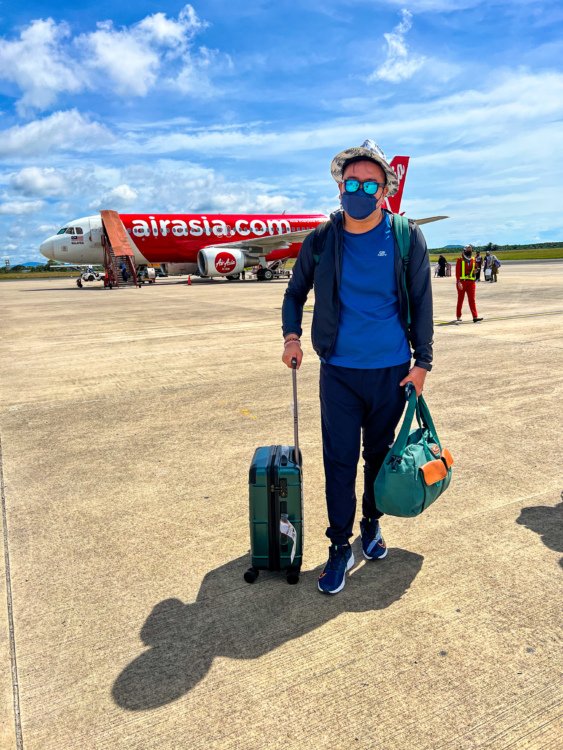
To-Do Lists Before Travel To Sabah
1. The Best Time To Visit Sabah
The best time to visit Sabah is from March to September which is during the dry season but you can also plan for your trip from October to February , just that it will be wetter compared to the other months.
Furthermore, Sabah is usually spared from the region’s extreme weather such as the monsoons or typhoons. This is the main reason why Sabah is known as “ The Land Below The Wind ” as it is just below the monsoon belt.

2. Consume Vitamin C and Supplement Always!
It is always advised to take vitamin C and other supplements to strengthen our immune systems, especially at this time of pandemic. Before engaging in outdoor activities, I also take a vitamin C supplement because it works well to prevent UV damage in addition to boosting our immune systems.
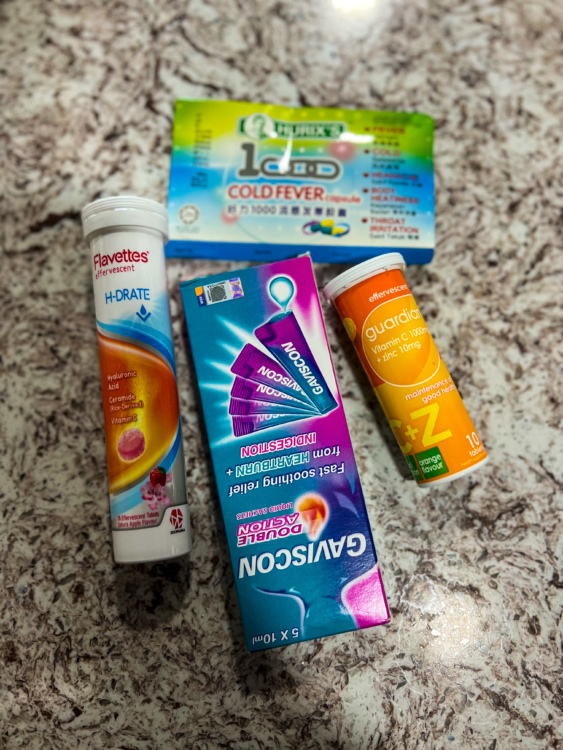
3. Do Bring Some Medicines With You As Well
Do you easily feel uneasy or sick especially when travelling? Well, there are a lot of factors that can contribute to this situation such as the crowded airports or stations in an enclosed space, the weather changes, the foods and drinks, and many more that our body’s need to adapt to.
To avoid unnecessary travel disturbance, it is always recommended to bring basic medication with you in case of emergency needs. The common items that I always brought with me are cold fever capsules, Gaviscon, Chi-Kit Tech Aun and medicated oil.
4. Personal Care Products
Sunscreen is also one of the essential items that everyone needs to apply everywhere you go! It is a must to wear to protect your skin from direct sunlight if you are doing outdoor activities for a longer period of time. This is to protect you from sunburn too. In addition to sunscreen, remember to apply moisturizer as well to keep our skin hydrated, well protected and cared for.
If you are exploring the jungle or spending time at the beaches, remember to bring insect repellent with you as well to keep all insects away from you.
While we want to keep ourselves at the best, do always put extra attention too to look for environment-friendly products to help protect them for the generation to come.

5. Suitable And Proper Attires With Necessary Gears
Do study and plan ahead on the activities lined up for the trip so that you can bring the proper attire and be well-prepared such as swimming wear, snorkeling gears, hiking props, or even waterproof casing and many more!
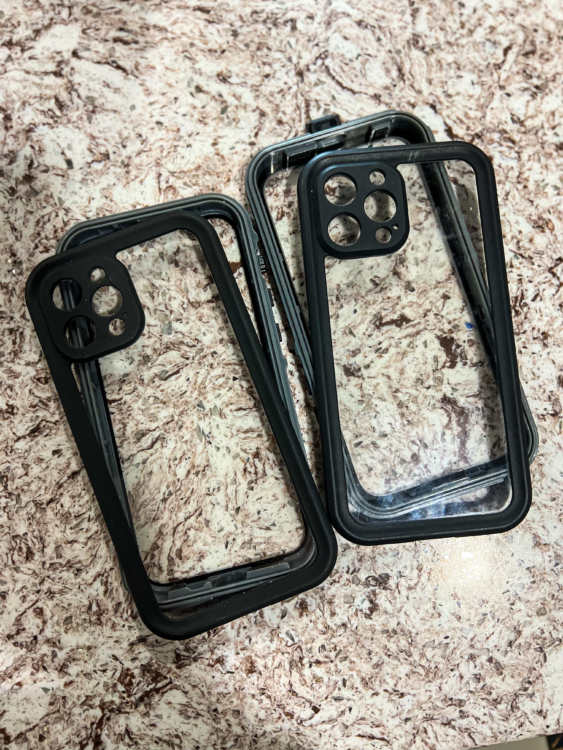
These are the most important checklists to do since we are travelling in the COVID-19 period now.
6. COVID-19 Travel Requirement
Sabah has announced the inter-state movement will be allowed from 1st November 2021 and Sabah has entered the Phase 4 SOP of the National Recovery Plan (NRP) with immediate effect on the 8th November 2021.
During my last visit on the 14th November 2021 to Tawau, it is MANDATORY for all inter-state travellers to be fully vaccinated with the second dose received after 14 days (2 weeks) of Pfizer, AstraZeneca or Sinovac vaccine .
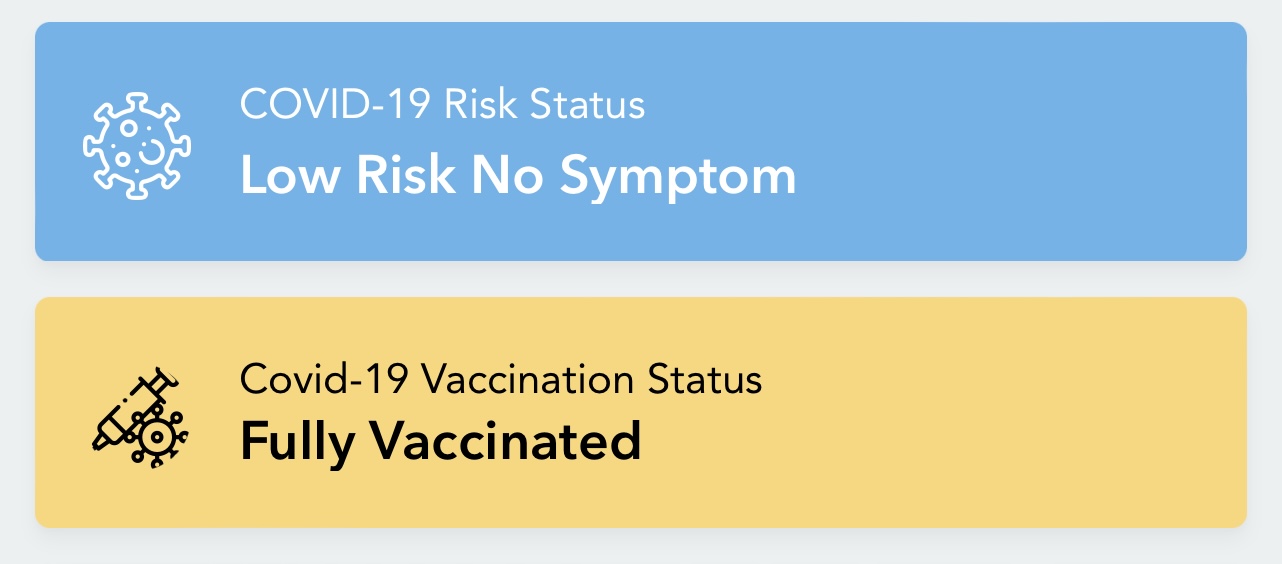
On top of that, it is a REQUIREMENT that travellers undergo a COVID-19 RT-PCR or RTK-Ag swab test within 3 days (72 hours) prior to travel. So, I did my COVID-19 test at Klinik Famili BTS Sdn. Bhd at the cost of RM 60 and received my result immediately on the same day with a physical report.
You will need to show this report during the check-in/boarding at/and upon arrival at the destination. The result will be updated in the MySejahtera app too!
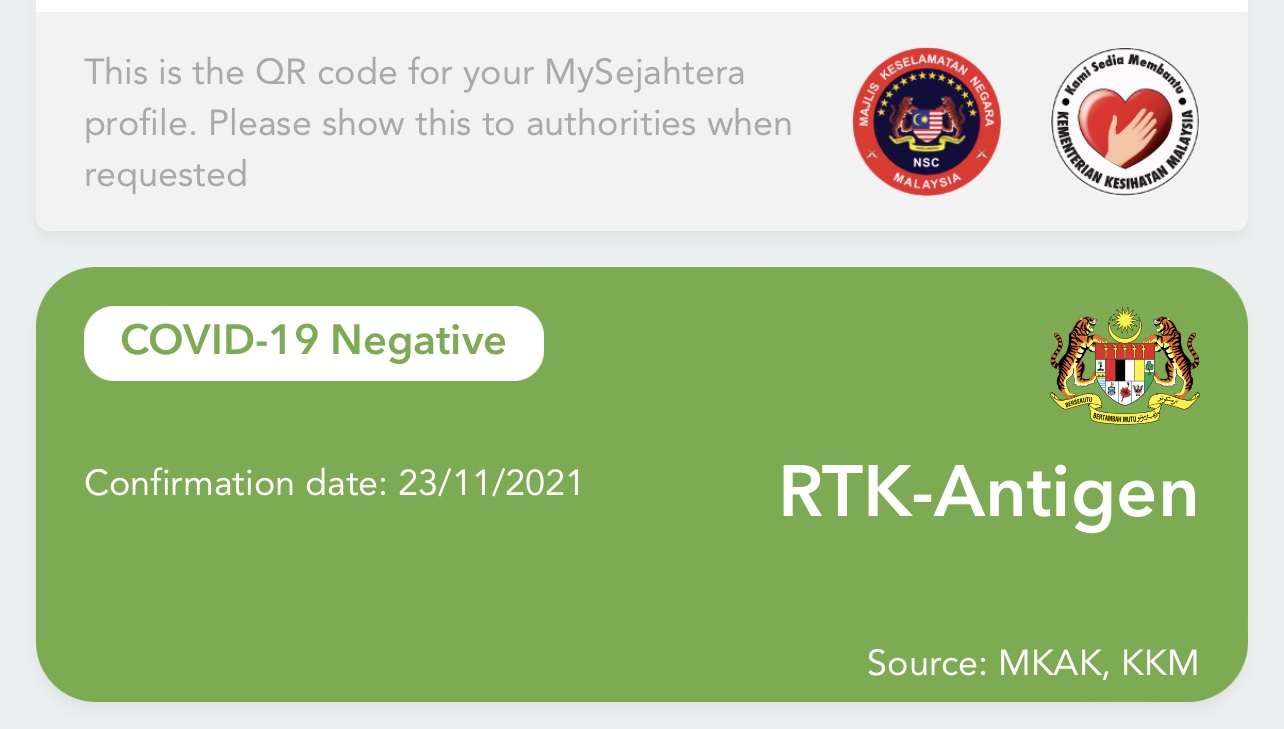
Other alternatives available will be making an online appointment with an appointed clinic , then performing the COVID-19 test through Zoom Call and witnessed by the certified medical personnel or you can perform the COVID-19 test at Kuala Lumpur International Airport 2 (KLIA 2) at Counter Z too. The price will be RM 5 if you bring your own test kit else, it will be RM 25 only.
However, starting from 1st December 2021, no swab test is required prior to entering the state of Sabah. But it is still RECOMMENDED for you and your travel partners to be tested before travelling for the peace of mind and the safety of others.
Be a responsible traveller especially during this period of recovery. Oh yes, I did it before and after my trip!
The information/facts is considered to be true and correct at the date of publication. For the latest update on travel requirements, please refer to http://www.sabahtourism.com/alert/ .
7. Sufficient Face Mask and Hand Sanitizer
Face masks and hand sanitiser are the most essential items in our daily life for almost 2 years now since the outbreak. Make sure that you bring a sufficient amount of face mask with you . My personal rule of thumb, I will have at least 5 face masks or extra with me for a day as it is advised to change it every four to five hours if you are in the public. Do not wear it for too long for hygiene and effectiveness purposes.

Be reminded that some of the travel destinations might not have the supply, so do prepare it in advance to avoid any inconvenience caused.
Do always sanitize your hands with hand sanitisers if soap and water are not readily available especially after touching common surface s as it can help to reduce the number of germs on hands in many situations. Washing hands with soap is still the best way to keep our hands’ germs free .
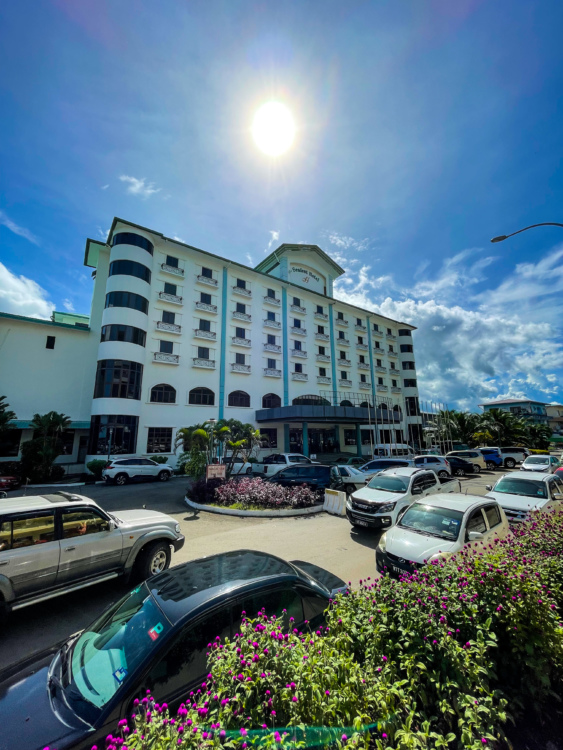
Other than that, remember to plan well on your finances during your trip as some of the places might not have access to credit card usage and there might be limited access to the ATM machine too!
If you are travelling from Peninsular Malaysia to Sabah and Sarawak, you will be issued with an entry slip at your arrival destination during the Immigration clearance, except for Sarawakian and Sabahan. Do keep this slip properly as misplacing will require you to lodge a police report prior to departure .

Now, we are good to go! Allow me to share a brief itinerary on how I spent my 4 Days 3 Nights at Semporna, Sabah .
- Arrival at Tawau Airport
- Lunch at Restoran Maskur 3
- Check-in at Seafest Hotel, Semporna
- Evening walk exploring Semporna
- Dinner at Anjung Lepa
- Boat transfer to Lato-Lato Mun
- Island Hopping at Bohey Dulang, Pulau Mantabuan, Pulau Sibuan
- Back to Lato-Lato Mun And Sunset
- Dinner at Lato-Lato Mun
- Free and Easy
- Boat transfer to Semporna
- Travel to Sipadan-Kapalai Dive Resort
- Safety briefing and Lunch + Check-In
- Snorkeling + Sunset Walk
- Dinner + Free and Easy
- Boat transfer back to Semporna
- Lunch at Semporna
- Departure to Tawau Airport
Since we are still in the midst of recovering from the COVID-19 pandemic, most of the attractions have changed their operating hours, so it is important for you to check ahead or if booking can be made , always make the booking before your arrival to avoid any disappointment s.
So, these are the checklists and brief itinerary that I had for myself during my last trip to Sabah and hopefully, this can be helpful for you to plan your trip ahead. Stay safe and let us together help to revive the economy to make Malaysia a great place to visit again in near future.

Special thanks to Sabah Tourism ( https://www.sabahtourism.com/ ) for arranging and making this trip happen.

Other Recent Articles
Gastronomical adventure with sabah’s traditional food, macro diving at tunku abdul rahman parks, explore and expand in sabah, invest in sabah, swiftlet cafe @ noungan farm, kaamatan, a celebration of culture, savour the flavours of sabah: experience the first ever restaurant week in kota kinabalu, the adventure race, kar ultra, sabah ready to rock the camp at matta fair kuala lumpur, discovering the artistic charms of sabah.
- Getting to Sabah
- About Sabah
- Getting Here
- Quick Facts
- People & Culture
- Things To Do
- Moving Around Sabah
- Video About Sabah
- e-Guide Book
- Sabah Wikipedia
- Sabah Calendar
- Malaysia Public Holiday
- Living Cost in Sabah
- Food Directory
- Sabah Tours
- Sabah Hotels
GETTING TO SABAH
Starting 1 January 2024, all international travellers to Malaysia are required to fill out the Malaysia Digital Arrival Card (MDAC) three days before arrival. For more information, CLICK HERE .
To register and submit the MDAC form, head over to the Immigration Department's website: https://imigresen-online.imi.gov.my/mdac/main
Sabah is well-connected domestically and internationally. The main gateway to Sabah is the Kota Kinabalu International Airport (KKIA) situated about 20 minutes away from the city. Malaysia Airlines and AirAsia provide daily direct flights to Sabah from Kuala Lumpur, Malaysia’s capital city.
Internationally, Sabah is accessible from Brunei Darussalam, China, Hong Kong, Taipei, Japan, Thailand, Philippines, Singapore and South Korea. The flights that operate here include Silk Air, Cathay Pacific, Royal Brunei Airlines, Cebu Pacific Air, China Southern, Dragonair, Rayani Air, MASwings, FireFly, Indonesia AirAsia and Malindo Air. Visitors from Australia can also arrive in Sabah via Kuala Lumpur. Malaysia Airlines also has direct domestic flights to Kota Kinabalu from Johor Bahru, Kuching, Sibu, and Miri, with in-state service to Sandakan and other towns. AirAsia has direct domestic flights from Johor Bahru.
Click HERE to view Summary of Direct International Scheduled Flight Frequency & Seat Capacity into Sabah .
Visitors from Labuan, Indonesia and Philippines can arrive in Sabah by sea. Ferry terminals and immigration checkpoints are situated at Kota Kinabalu, Sandakan and Tawau.
The Sutera Harbour Marina in Kota Kinabalu welcomes foreign guests who wish to berth their yachts in comfort and convenience. Vessels are required to do port clearance before their crew is allowed ashore.
Overland travel between Kota Kinabalu, Kuching and Brunei Darussalam is possible via the Trans Borneo Highway. However, visitors are advised to be prepared for long journeys. Those who are intending to self-drive should plan their routes and rest stops.
AIRLINK TO SABAH
Sabah has international air links to major destinations in East Asia and Australia. All international arrivals and departures are directed to Kota Kinabalu, the Capital City of Sabah. Most international air links from Europe and America can be connected through major cities in the South East Asia region such as Hong Kong, Kuala Lumpur, Singapore, Tokyo, Seoul, Taipei, Manila and Bandar Seri Begawan.
KOTA KINABALU INTERNATIONAL AIRPORT
Kota Kinabalu International Airport is the gate way to Sabah. Located 7km from the city of Kota Kinabalu. The only mode of public transport from the Airport is by taxi. Journey from the airport to the city is controlled where only airport taxis are allowed to pick up passengers. Please don't forget to purchase your taxi coupons from the taxi counter outside arrival hall. Two licensed money changers are available outside the arrival hall to change your foreign currency or traveler's cheques. All airport trolleys are free of charge. Some hotels provide shuttle bus to pick up passengers from the air port. Please go to Transportation for more details.
KKIA located at the Kepayan area, it can be accessed via Jalan Kepayan, Jalan Lintas and Jalan Putatan. The airport is capable of handling 9 million passengers annually, compared to its previous capacity which is 2.5 million passengers annually. It also features duty-free shops, other shops, lounges, travel agents, restaurants and many others.
ENTRY TO MALAYSIA
A valid passport (and visa wherever applicable) is required for of everyone entering Malaysia. A passport is also necessary for travel between Peninsular Malaysia and the East Malaysian states of Sabah and Sarawak, as well as interstate travel between Sabah and Sarawak. A social or Tourist Visit Pass does not permit the holder to take up employment, business of professional work in Malaysia. The Business Visit Pass allows foreign negotiations or inspection of business establishments. These passes, however cannot be used for employment purposes or for supervising the installation of new machinery of construction of a factory. No fee is charge for a Business Visit Pass issued for a period of up to three months. A fee of RM5.00 is imposed for each month thereafter.
All international arrivals must go through custom clearance. No duty free items are allowed from flights from Peninsular Malaysia and Sarawak. However, visitors from Labuan are allowed to purchase duty free goods if they stay more than 24 hrs in Labuan Island. Please click here for more info. Please note that pornography, weapons and walkie talkies are prohibited. Items with triggers such as firearms, spear guns, air guns and etc are subject to licensing.
There are several popular airliners currently serving destinations to Sabah. From Europe, Australia one can take Brunei Airlines to reach Brunei and later opt reach Sabah by ferry (reaching Labuan) or by road. The National Airlines MAS serves international routes with transit via Kuala Lumper, the capital of Malaysia. Those from China, Hong Kong, Taiwan can choose Singapore Airlines or it's partner Tiger Airways. Airasia is the favourite domestic airlines, it's sister company AirAsia X offers international destinations as far as London and Sdyney.
IMMIGRATION
All visitors are required to complete an Arrival/Departure card, a Customs Declaration, and if required, a Travelers Declaration Form (TDF) and Quarantine Form. These are given out during all inbound Malaysia Airlines' flights. Travelers are no longer required to complete the TDF except under the following circumstances:
- Resident and non-resident travelers who carry Ringgit in excess of RM 1,000.00
- Resident travelers who take out foreign currency notes and/or travelers cheques exceeding the equivalent of RM 10,000.
- Non-resident travelers who bring into Malaysia more than US$2,500 equivalent.
The current practice of obtaining prior written approval from Bank Negara Malaysia remains unchanged for the following:
- Non-Resident travelers who take out foreign notes and traveler's cheques in excess of the amount brought in, provided the amount taken out is more than the equivalent of US$ 2,500.
The TDF form should be handed to the immigration officer together with the disembarkation card and passport.
Visa Requirement by Country
1. countries that require visa.
- Afghanistan (Visa with reference)
- Burkina Faso
- Central African Republic
- Congo Democratic Republic
- Congo Republic
- Equatorial Guinea
- Guinea-Bissau
- Hong Kong (C/I or D/I)
- Myanmar (ordinary passport)
- Serbia & Montenegro
- Taiwan - 15 days without visa
- United Nations (Laissez Passer)
- Western Sahara
2. Commonwealth Countries that require Visa
3. countries that require visa for stays exceeding 3 months.
- Austria (Vienna)
- Bosnia-Herzegovina
- Czech Republic
- Kyrgyz Republic
- Liechtenstein
- Netherlands
- Saudi Arabia
- South Korea
- Switzerland
- Turkmenistan
- United Arab Emirates
- United Kingdom
4. Countries That Require Visa For Stays Exceeding 1 Month
- El Salvador
- Guinea Republic
- Hong Kong SAR
- North Korea
- North Yemen
- Sao Tome & Principe
- Upper Volta
- Vatican City
5. Countries That Require Visa For Stays Exceeding 14 Days
- Iran (90 days)
- Iraq (30 days)
- Macao (Travel Permit/Portugal CI)
- Palestine (30 days)
- Sierra Leone
- South Yemen
- Syria (30 days)
- Cote d'ivoire / ivory coast
- No visa is required for U.S.A. citizens visiting Malaysia for social, business or academic purposes (except for employment).
- No visa is required for stays of less than one month for nationals of all ASEAN countries except Myanmar nationals. For a stay exceeding one month, a visa will be required, except for Brunei and Singapore nationals.
- For nationals of Israel, visas are required and permission must be granted from Ministry Of Home Affairs.
- For nationals of Republic of Serbia and Republic of Montenegro, visas are required without permission granted from Ministry Of Home Affairs.
- Nationals of countries other than those stated above (with the exception of Israel) are allowed to enter Malaysia without a visa for a visit not exceeding one month.
We hold no responsibilty in any inaccurate information stated above. We strongly advise that all travellers coming into Malaysia to check the latest entry requirments and visas from the Immigration Department of Malaysia.

Instant Book Now 👍 Limited Time Best Deals
- Quick Facts about Sabah
- People and Culture
- Things to Do in Sabah
- About Malaysia
- Hotels & Resorts
- e-Guide Book (Free Download)
- Calendar of Events
- Malaysia Public Holidays
- Living Cost
- Flight Schedule Recommendations
- About Sarawak
- Getting to Sarawak
- Quick Facts about Sarawak
- Things to Do in Sarawak
- Moving Around Sarawak
- Sarawak Maps
- Sarawak Calendar of Events
- Beach Resorts
- Island Resorts
- Kota Kinabalu City Hotels
- Mount Kinabalu Huts
- Kinabalu Park Hotels
- Kundasang Ranau Hotels
- Sandakan Hotels & Kinabatangan Lodges
- Tawau & Semporna Hotels
- Lahad Datu Hotels
- Kudat Hotels
- Danum Valley - Borneo Rainforest
- Tabin Wildlife Resorts
- Papar Resorts
- Kuching Hotels
- Mulu Hotels
- Miri Hotels
- Daily One Day Tours
- Mount Kinabalu Packages
- Mount TrusMadi Packages
- Wildlife Adventure
- Borneo Cycling Tours
- Sea Adventure (Snorkeling & Diving)
- PADI Diving Courses
- Jungle Trekking Adventure
- Sipadan Diving
- Free and Easy Tours
- Family Packages
- Honeymoon Packages
- Education Tours
- Corporate Incentive Tours
- Adventure & Sports
- Relaxing Islands
- Cultural Experiences
- Full Package Tours (Multiple Days)
- North Borneo Dinner Cruises
- Kinabalu Park Packages
- Kinabatangan Packages
- Danum Valley Packages
- Most Popular
- Bako National Park
- Danum Valley
- Discover Sabah Multiple Days
- Kinabalu Park
- Kinabatangan (Sukau/Bilit)
- Kota Kinabalu City
- Kudat Tip of Borneo
- Maliau Basin
- Mount Kinabalu
- Mt Kinabalu Via Ferrata
- Mount Trusmadi
- Mulu Pinnacles & Caves + Miri
- Orou Sapulot
- Sipadan Island
- Tabin Wildlife Reserve
- Turtle Islands
- Sabah & Sarawak Dual States
- Transportation Services
- Mount Kinabalu Climb Packages
- Introduction to Mount Kinabalu
- Accommodation in Mount Kinabalu
- Via Ferrata
- Tips for Climbers
- Things to Bring
- Mount Kinabalu Video
- Maps and Trail
- Introduction
- Snorkeling Packages
- Diving Packages
- Diving Sites
- Diving Video
- General Information
- Meetings & Conventions
- Corporate Team Building
- Testimonial
- Mount Kinabalu Videos
- Video Gallery
- Why Travel With Us
- Life @ Amazing Borneo
- Awards & Recognition
- Sustainability
- Our Tour Guides
- How to Book
- Terms & Conditions
- Payment Options

Call us now: + (60) 88-448409 Email: [email protected]

You can view your booking, download your itinerary anywhere and anytime you want


New guideline for international travelers to Sabah

KOTA KINABALU (April 25): A new guideline has been issued for the entry of international travelers to Sabah via air, land and sea.
International travelers are given the option to undergo a Covid-19 RTK-Antigen detection test (performed by trained health personnel) upon arrival either at the international gateway or outside the international gateway within 24 hours, said Local Government and Housing Minister Datuk Seri Panglima Masidi Manjun.
For international transit travelers at the Malaysian international gateway that are outside Sabah, they will be allowed to continue their journey to Sabah and are given the option to undergo a Covid-19 RTK-Antigen detection test (performed by trained health personnel) upon arrival either at international gateway or outside the international gateway within 24 hours.
At the same time, international transit travelers coming through Singapore and arriving at the Sabah International gateway are given the option to undergo a Covid-19 RTK-Antigen detection test (performed by trained health personnel) upon arrival either at the international gateway or outside within 24 hours, he said.
Masidi also said Sabah’s new Covid-19 cases dropped to 48 on Monday, the lowest since March 30, last year.
All districts were showing signs of stabilizing with minor daily changes.
“Except for Kota Kinabalu which registered 21 new cases, all other districts in Sabah recorded below five cases. No new infections were registered at 11 districts and eight out of 15 districts registered only one new case each,” he said.
He added that the low infection statistics testified to the efficacy of vaccines given to nearly all of the eligible population in Sabah.
“The high level of SOP compliance among the people in Sabah also helped to reduce Covid-19 infections.” A total of 44 out of the 48 patients on Monday were under category one and two, while three were in the fourth category, and one categorized under category five.
Sponsored links
- Compare Hotels

Getting To Sabah
Autonomy is practised by Sabah on its migration rules, mostly to ensure that non-Sabahans can’t immigrate freely and fill the state. A certain grade of immigration control apply to the Malaysians from neighbouring Sarawak and Peninsular Malaysia. This includes showing of identity cards and a restricted stay of 3 months maximum at a stretch. A valid passport is needed for foreigners planning to enter Sabah.
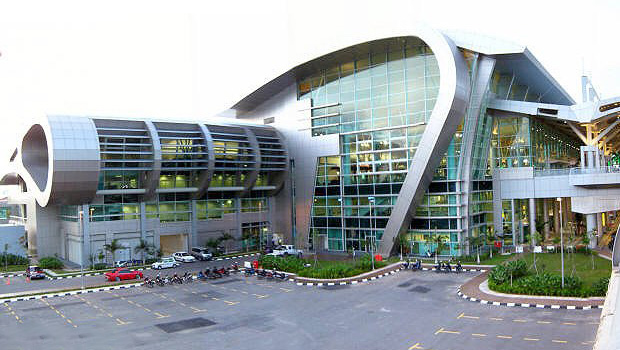
Sabah enjoys international air connections to destinations in Australia and East Asia too. All international departures and arrivals are directed straight to Sabah’s capital city, Kota Kinabalu. Visitors coming from America and Europe has to transit at the major cities of South East Asia like Kuala Lumpur, Singapore and Bandar Seri Begawan, from where they can fly to Kota Kinabalu.
The airport is located 7 kilometres away from Kota Kinabalu. From the airport, taxi is the only form of transport. This journey from airport to Kota Kinabalu is a controlled one with airport taxis being permitted only to pick up the passengers. Taxi coupons need to purchase from the taxi counters positioned outside the arrival hall. Here, you will find two money-changers where you can change your traveller’s cheques or foreign currency. The airport trolleys is provided free of charge. There are also shuttle buses offered by certain hotels to pick up their customers from the airport.
The airport has two terminals. Terminal 1 is KKIA’s main terminal situated at Kepayan area. This terminal can be reached via Jalan Putatan, Jalan Lintas and Jalan Kepayan. This terminal is undergoing a big renovation and expansion process. Upon completion, it is equipped enough to handle 9 million passengers every year compare to its earlier capacity of 2.5 million. It also features lounges, restaurants, duty-free shops, travel agents, etc.
Terminal 2 used to be the airport’s original terminal building. This terminal is accessed via Tanjung Aru’s Jalan Mat Salleh and is located just opposite of terminal 1’s runway. Terminal 2 is mainly used by charters and low cost carriers. It might have been modernized to serve the needs of low cost carriers such as AirAsia but it is not at all a LCCT (low cost carrier terminal), with the terminal being used by full service airlines as well. Check-in counters numbers at 26 for international and domestic flights, along with 6 parking bays, 7 x- ray machines (luggage), 13 immigration counters and a VIP room. Annually, this terminal is capable enough to handle almost 3 million passengers.

Officially, you can’t just walk across to Indonesia however there are some unoffical tracks from Sabah’s interior which are used by the locals to gain access to East Kalimantan.
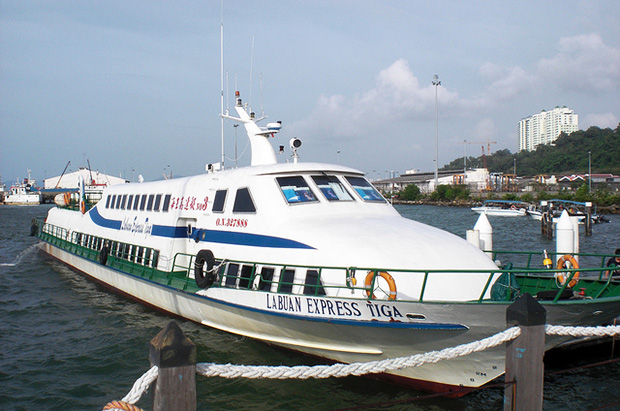
About the Author
Related Posts
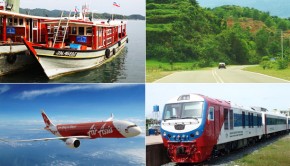
Getting Around Sabah →
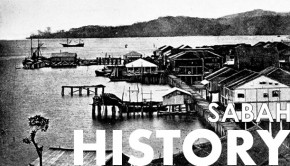
Sabah History →

Sabah Culture →
Leave a reply cancel reply.
Your email address will not be published. Required fields are marked *
Save my name, email, and website in this browser for the next time I comment.
Don't subscribe All Replies to my comments Notify me of followup comments via e-mail. You can also subscribe without commenting.

goSabah.my © 2013~19. All rights reserved.

MySabah.com
Travel guides to Sabah, Malaysia Borneo
Honest Travel Guide to Sabah
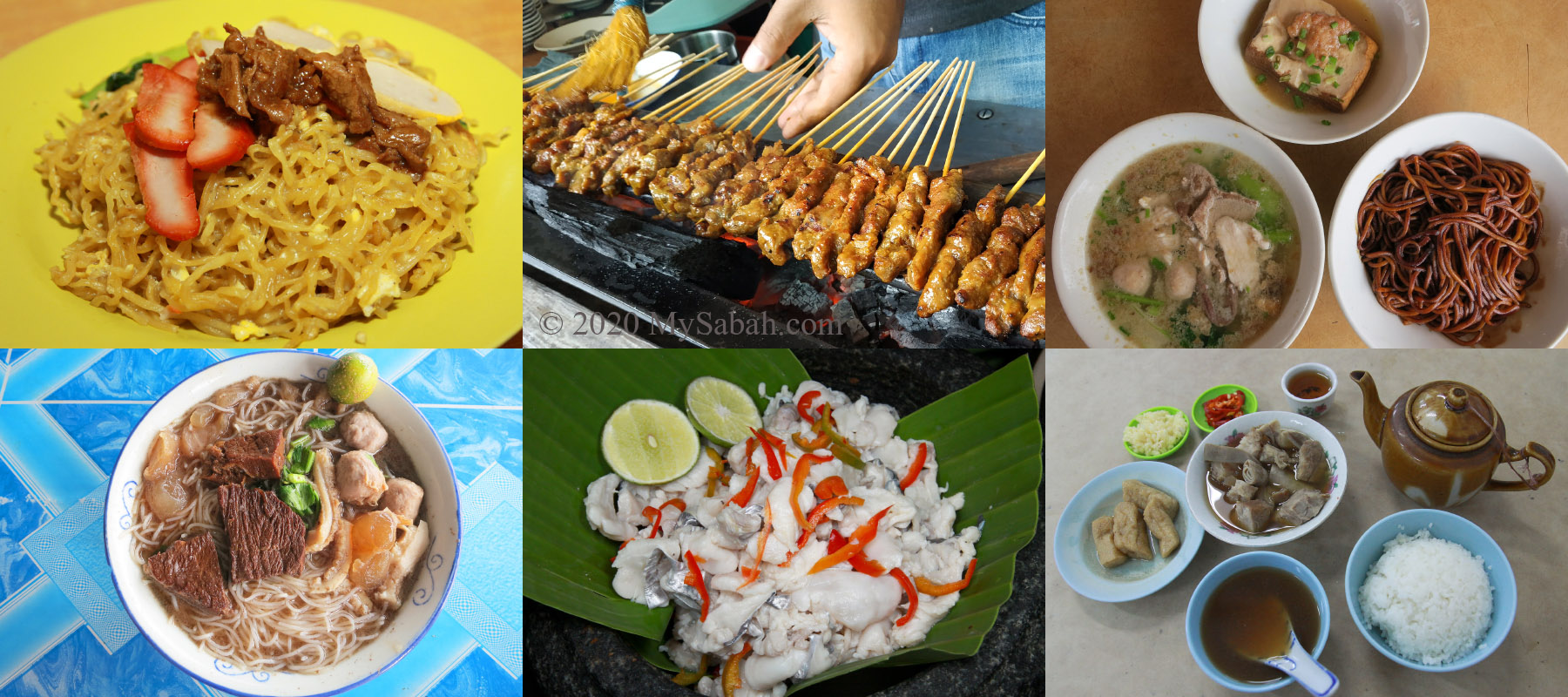
Every year about 4 millions tourists visit Sabah because of her nature wonder, which is completed with islands & beaches, hills & mountains, pristine rainforest, abundant marine and Borneo wildlife, and colorful cultures, all suitable for a leisure vacation and softcore adventures. We have Sipadan Island , one of world’s top 5 dive sites, Danum Valley , a Borneo virgin rainforest older than Amazon and Mount Kinabalu , the highest mountain of Malaysia.
Where is Sabah?
Sabah is one of the 13 states of Malaysia, a country in the centre of South East Asia. Sabah is at the northern part of Borneo, the third largest island in the world, shared by three countries, namely, Malaysia (Sabah and Sarawak), Brunei, and Indonesia (Kalimantan). Sabah is the second largest state of Malaysia, and also a mountainous state with 59% of her land covered by forest.
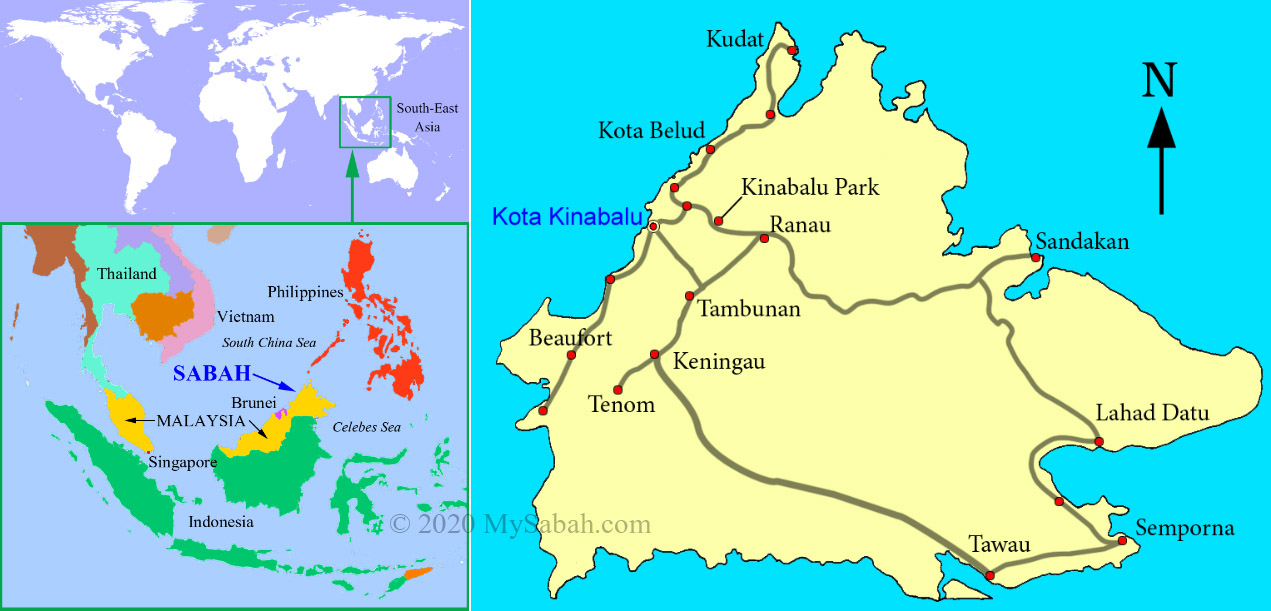
The capital of Sabah State is Kota Kinabalu city (KK in short). With a population of over 244,000, KK is located in west coast and the 13th largest city in Malaysia. Most tourists who visit Sabah will land in KK by air. KK is voted as one of the best cities for retirement in the world .
Sabah is 8 hours ahead of GMT (GMT+8), same time zone as Kuala Lumpur and Shanghai.
Current local time in Kota Kinabalu, Malaysia
Malaysia is a tropical country with warm and humid climate (Humidity: 85-95%) throughout the year, so is Sabah, the temperatures are fairly constant, ranging from 32°C (90°F) in lowland to 21°C (70°F) in highland . Temperature can reach near freezing point in higher altitude of Mt. Kinabalu. The wettest months of Sabah are from December to January , with heavy rain from Northeast Monsoon. The dry months are from March to September. The most comfortable clothing are lightweight and quick-dry T-shirt, shorts and sandal. Only in highland such as Kundasang, Ranau, Tenom and Tambunan you would need more clothing like jacket to stay warm. To locals, our weather only has 3 modes: sunny, cloudy or rainy.

Natural Disasters
Sabah is also known as The Land below the Wind because we are just below Typhoon belt of Philippines and not hit by typhoon. However, the tail of typhoon would brings rainstorm (happens occasionally between Apr and Nov), strong wind and rough waves that affect outdoor activities. During heavy rain season, flood and landslide occurs in some areas. It’s advisable not to visit Kinabalu Park on the same day you leave Sabah, just in case the way home is blocked by landslide.
No Tsunami (tidal wave) threat presents in Sabah. There was a magnitude 6.0 earthquake in 2015, but no life-threatening earthquake thereafter. Week-long haze may or may not occur between Jun and Sep, the time neighbouring Kalimantan clear the land by open burning.
What’s the Best Time to Visit Sabah?
Actually anytime is fine. Due to global warming, the weather is not so predictable.
- Dry Months : March to September (ideal for outdoor activities)
- Diving : April to June (best visibility and calmest waters), February to March (whale shark season)
- Turtle Nesting: July to August
- Stargazing: April to September
Worst Months to visit:
- Chinese New Year (between late Jan and mid-Feb) and Puasa (Muslim fasting month), the time when many shops / restaurants are closed.
- Wet Months : Nov-Jan (Northeast Monsoon)
- Peak Season (Travel): Nov-Jan and Jun-Aug. Book flight and hotel earlier if you will visit Sabah in these months.
Events & Festivals
You won’t regret to add the following grand cultural events into your itinerary.
- 30 & 31 May: Kaamatan Celebration (Harvest Festival)
- April: Lepa-Lepa Water Festival *
- October: Tamu Besar *
*date is subject to change
Electricity
Electricity is on the 240 Volts AC/ 50-Cycle system. Malaysia uses standard British three-pin rectangular blade plug (Type G) and sockets. You can buy the travel universal plug in our shopping malls.
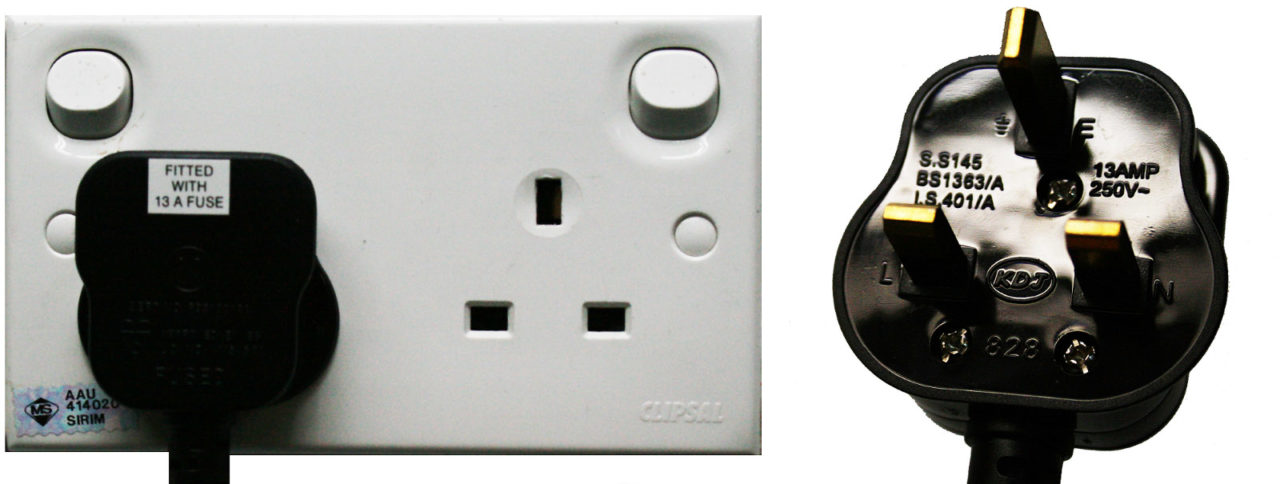
Units of Measurement
British Imperial System. We use Kilometre (KM), Metre (M) and Centimetre (CM) to measure distance and length, Kilogram (Kg) and Gram (G) for weight measurement.
Money and Payment
The international currency code of Malaysian Ringgit is MYR. But you see Ringgit is more commonly labelled as RM on price tags here. Both MYR and RM are the same thing (e.g. RM20 = MYR20). Banknotes are divided into the following denominations: 1, 5, 10, 20, 50 and 100.
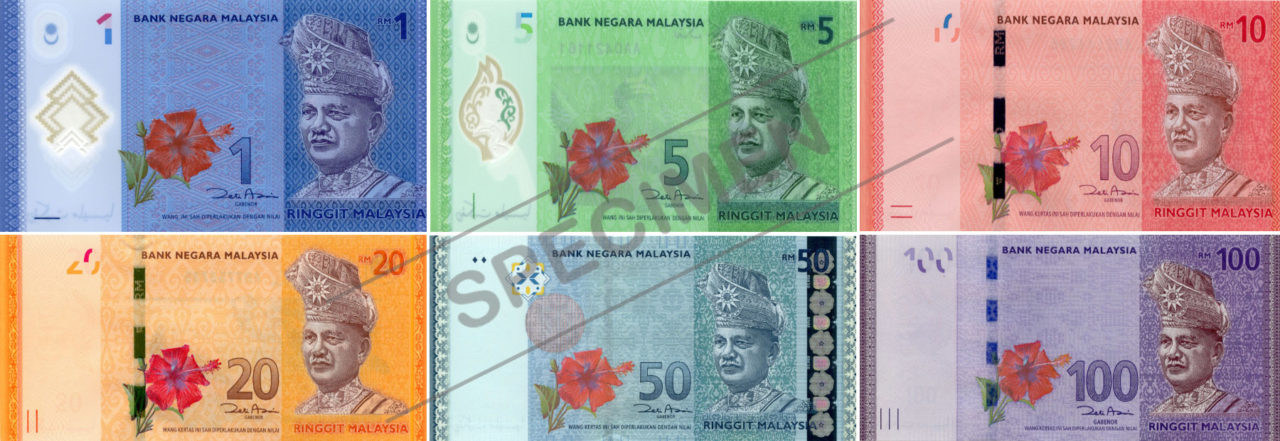
Cash is King , so always have at least one or two hundred Ringgit cash with you, though e-Wallet such as Boost is getting very popular. Small eatery, bus and national parks usually expect you to use cash. Credit Cards such as MasterCard and Visa are widely accepted by hotels, restaurants and larger shops. Some shops may require you to spend a minimum amount of money like MYR30 or MYR50 to allow payment by credit card.
Currency Exchange
Kota Kinabalu International Airport has a few money changers where you can exchange your currency to Ringgit. You may exchange a small amount of money, then convert the rest with Licensed Money Changers in the shopping malls, which offers better rate. Most major hotels charge a nominal fee for currency conversion. You can use the form below to check the latest exchange rate of your currency to Malaysian Ringgit (MYR).
There are a lot of licensed money changers in shopping malls of city. Make sure your notes are in near-perfect condition as notes with any torn or stains would not be accepted by money changers. Commonly accepted currencies are US Dollar, Australian Dollar, British Pound, China RMB, Indonesia Rupiah, Philippines PESO, Thailand Baht, etc. You may convert your money to one of these currencies above in your country first to bring to Sabah. Be vigilant of people around you when you leave the counter with your money.
Internet WiFi & Phone
Sabah has 4G coverage in populated area. You can get a local SIM card and register a prepaid phone line (with Internet data plan) at Kota Kinabalu International Airport, if you arrive in normal working hours. Our big 3 cellphone service providers are Celcom , Maxis (HotLink), and Digi .
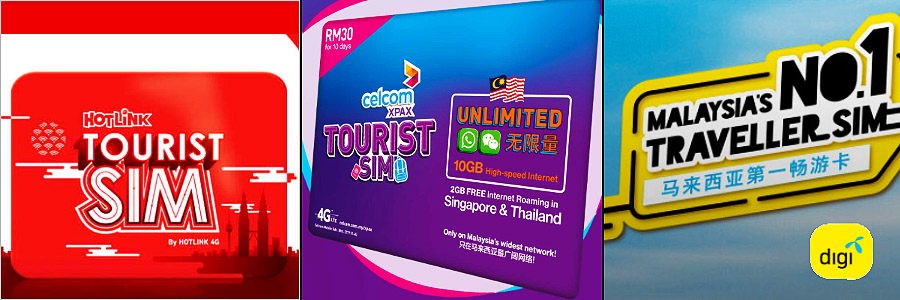
Maxis has great Internet speed in city and suburban areas. Celcom has the widest coverage but fairly slow line. Digi is somewhere in between. You and your travel mates can use different providers to backup each other. You can browse the Traveller SIM Cards by Celcom , Maxis , and Digi .
There are many phone shops in city that can help you to register a line or reload credit. By law you need a passport to register. The country code of Malaysia is 60. If you get a mobile phone number like 012-3456789. Your overseas friends and relatives can call you at +60 123456789. Anyway, you can use Whatsapp and Facetime. Set your phone to airplane mode when you are in remote places that have no connection, or the busy network search would drain your battery.
WiFi service is available in most hotels (some may charge a fee). Many restaurants and cafes in town also have free WiFi access. Kota Kinabalu City centre has free WiFi but the connection is quite patchy (no every street is in the range).
Travellers can buy almost every necessities in Sabah, so you can cut the weight of you check-in luggage. Shopping malls generally open daily from 10am to 9:30pm. They are air-conditioned and good place for grocery shopping, phone service, local food, money changers, clothing, and movie time. Toilet inside shopping mall collects an entry fee of MYR0.20 to MYR0.50. Besides shopping malls, you can find drug store / pharmacy, supermarkets, and 24×7 convenience stores around town area.
Things to Buy
Sabah Tea, Tenom Coffee, White Coffee, Orangutan / Proboscis Monkey plush toy, handicraft (bead necklace / bracelet, baskets), hand woven tapestries, colourful serdang box, Sabah batik, durian chocolate, mango candy, dried seafood, frozen seafood, scarf with Sabah motif, and sting-less bee honey are popular buy, besides the ordinary keychain, fridge magnet and I♥Sabah T-shirt. You may check out my guide on 10 best souvenirs to buy in Sabah .
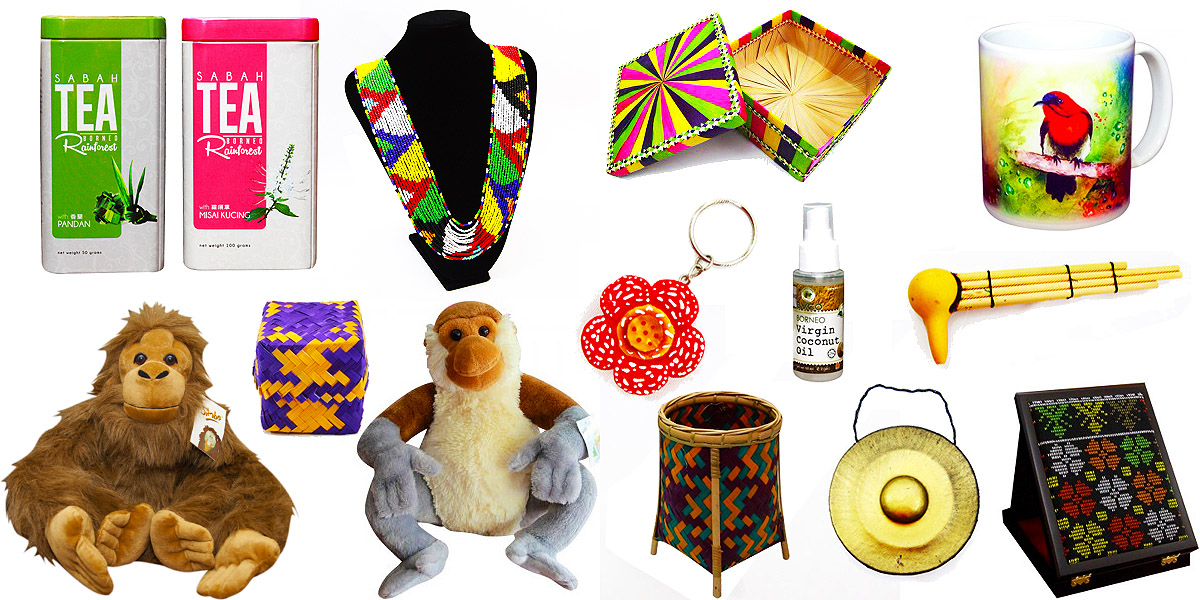
Good places to shop and bargain for these souvenirs are Gaya Street shoplot and its Sunday Market (7am-12pm) in KK City Centre. Filipino Market next to KK Central Market is also a good spot. KadaiKu has the best line of authentic Sabah products (higher prices).
Popular Tours
Most tourists travel in Sabah for 5 days and majority of them visit or do the following:
- Climbing Mount Kinabalu *: the highest mountain of Malaysia
- Kinabalu Park : staycation in the cooling highland and tour around the UNESCO World Heritage Site and Geopark
- Kinabatangan River ( Corridor of Life ): river cruise to see Orangutan, Proboscis Monkey and Pygmy Elephant
- Sepilok Orangutan Rehabilitation Centre Orphanage and “school” of baby orangutan
- Tunku Abdul Rahman Park : beautiful islands (e.g. Sapi , Manukan ) 15 minutes away from KK
- Mantanani : Mermaid Island
- Mari-Mari Cultural Village : experience lifestyle of 5 native tribes
- River Cruise at Klias , Weston , Kawa-Kawa : Wetland, Sunset and Proboscis Monkey
- Poring Hot Springs : natural hot springs, tree canopy walk, rafflesia flower
- Tip of Borneo : scenic beach and seascape
- Islands of Semporna (part of Coral Triangle): Sipadan *, Mataking Island , Mabul Island , Bohey Dulang Island
- Padas / Kiulu River Rafting
- Danum Valley : 130-million-year old primary rainforest
- Turtle Islands Park (Selingan) *: turtle nesting and hatchery
*Need to book 6 months in advance as they are always fully booked, even in non-peak seasons.
Sabah has many more wonderful attractions, please explore them in this travel blog MySabah.com (shameless self-promotion). Not all destination accepts walk-in tourist, some requires you to go by tour.
People and Culture
There are 42 ethnic groups living in harmony in Sabah. In Sabah population of over 3.5 millions, Kadazandusun people are the largest indigenous group and occupy 30% of population, followed by Bajau (21%), Malay (20%) and Murut (5%). 12% of Sabah population is Chinese and most of them live in cities. Interracial marriage is very common, so don’t be surprised if a native can speak Chinese.
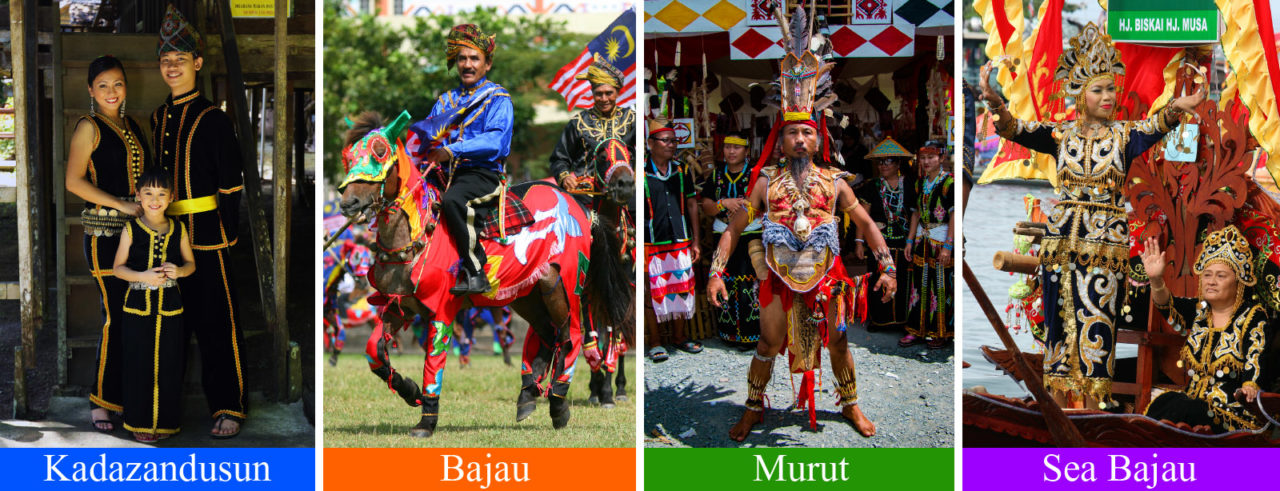
Generally, Sabah people are gentle, friendly and more tolerant. Though we are Malaysians, we like to call ourselves as Sabahans . Sabahans are very laid back, we might look like slow loris to those from fast-paced modern cities LOL.
Interesting Facts
- The iconic dance of Sabah is Sumazau of Kadazandusun people, which mimic the movement of bird in flight.
- Murut was once the headhunter of Borneo. Their bamboo dance (named Magunatip ) is to welcome the return of headhunters.
- Bajau is the Cowboys of the East because of their excellent horse-riding skill.
- Sea Bajau in East Coast is also known as Sea Gypsies , sea nomads who spend their lives (cooking, giving birth, sleeping) on the boat.
- Most Sabah Chinese are the descendants of Chinese labours immigrated from China in 19th century. Hakka, Hokkien and Cantonese are the most common Chinese dialects.
Islam is the official religion of Malaysia and 65% of Sabah people are Muslim, followed by Catholics, Christians and Buddhists. Many destinations have Surau room for Muslim to pray. In hotel room, look for the Qibla compass on the ceiling that points to Makkah. Malaysia is rated as a top Muslim-friendly holiday destination , in terms of Islam-compliant on food, services, prayer facilities and accommodation.
About 80 languages are spoken in Sabah. Malay is the national language, English is our second language and widely spoken, especially in urban and business environment. English is used in shop signage and even food menu. Chinese is also common in cities. Tourists have very little language barrier in Sabah. Most Sabahans are multilingual and can converse in 2 or more languages such as Malay, English, Chinese (Mandarin), Hakka and Cantonese.
Yes we know English but… it’s not our mother tongue. If we have problem to understand you, you may need to speak slowly and clearly using simple words. Avoid using slang from your region.
Useful Phrases
Sabahans do understand basic English phrases such as “How are you?” and “Thank you.” You can travel comfortably in Sabah without learning any local words. The only reason you learn is for ice-breaking with your cute pronunciation. If you really want to impress the locals, say “ Boleh Bah Kalau Kau ” (meaning: Can / Sure if this is for you / Of Course!) or Bah (meaning OK or Yes).
Anyway, here are some useful words for you to read local signage: Tandas (Toilet), Lelaki (Male), Perempuan (Female), Tutup (Closed), Jalan / Jln. (Road / Street), Kampung / Kg. (Village), Taman (Park), Masuk (Entrance), Keluar (Exit), Kedai (Shop), Bas (Bus), Teksi (Taxi), Air (Water).
Local Etiquette
Sabahans are really diversified. Even if one group accepts certain interaction, the same thing can be awkward to others. Don’t worry. Sabahans are highly-tolerant. But good to be respectful and sensitive.
- Take off your shoes before entering house, mosque and (some) temple.
- Don’t handshake with left hand. A handshake should only be initiated by ladies.
- In places of worship, visitors are required to dress modestly. Lady is required to wear scarf and long skirt to cover their hair and exposed skin in mosque.
- Muslim takes no pork & liquor, do not offer them.
- Pointing at people with index finger is rude, you may use your thumb to point at something (still better not pointing at any person).
- No nude / topless sunbathing on beach (I have no complaint but many think boobs are evil).
- Holding hand and hugging with your spouse in public is romantic. Long wet kiss is probably too much here.
- Guys, don’t touch the shoulder of female.
Just to list a few examples of misbehaved tourists: going nude on Mount Kinabalu and Sibuan , walking in city with bikini , hot dance at mosque . Sabah is not Miami.
Food and Dining
The staple food of Sabahans are rice, noodles and bread. As a multicultural and food loving society, we have many options to spoil you. The most common place locals going for a meal is Kopitiam or Kedai Kopi (Coffee Shop), an open air shop which sells common food items such as mixed rice ( nasi campur ), chicken rice and fried noodles. A proper meal costs about MYR6 to MYR8 (without drink) in city. Japanese food, Western food and fast food are common as well in city. Fun Fact: All small towns have KFC Fried Chicken.
Recommended Food
Tuaran Mee (Tuaran Fried Noodle), Ngiu Chap (Beef Noodle), Sang Yuk Mee (Pork Noodle), Tamparuli Mee , Fish Noodles , Seafood , Kon Lou Mee (Dry Noodle), Nasi Lemak, Bak Kut Teh , Satay, Laksa, Rojak, Soto (Malay Noodle Soup), and Hinava (Local Fish Salad).
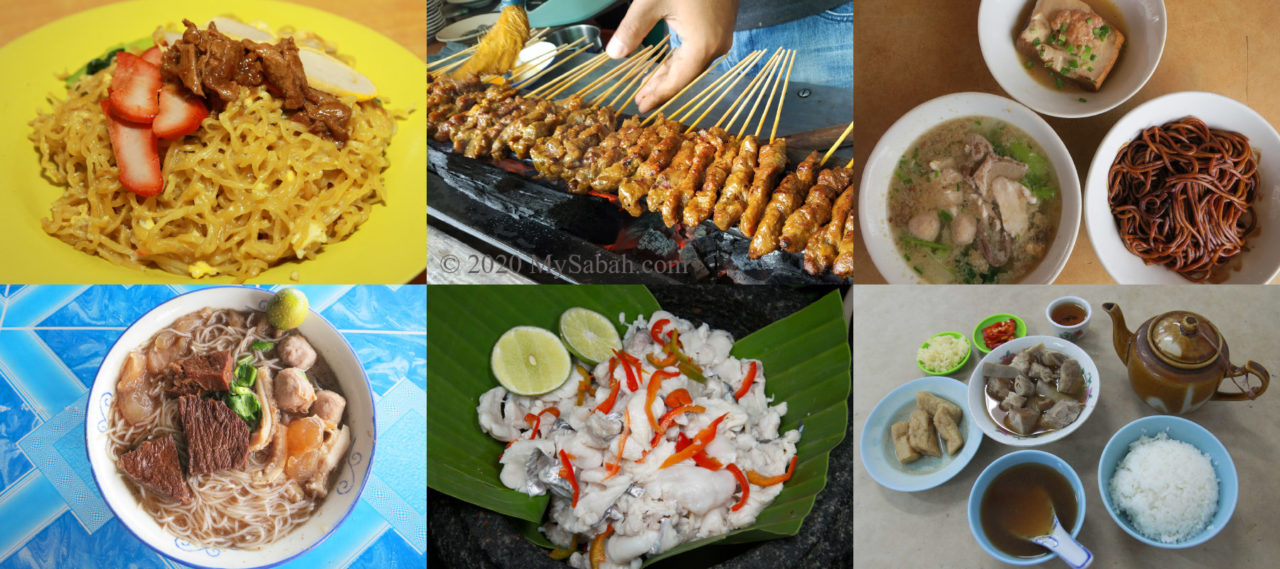
Dining Guide
If this is your first time visit Sabah, below are some guidelines:
- No smoking in any eatery.
- Some restaurants say they “Serve No Pork” but that doesn’t mean they are certified halal. Look for halal logo when in doubt.
- Most Sabah hotels are compliant with Halal.
- Malay and Indian Kopitiams serve Halal (Muslim) food. Non-Muslims are also welcome to eat there.
- You may see a small pot on table of Malay Kopitiam, the water is for washing hands. Don’t drink it.
- Some kopitiam are self-service. You need to get your utensils and condiment at one corner.
- Food spoils fairly quick in warm temperature of Malaysia. Don’t eat wet food that is left overnight in room temperature. You would suffer food poisoning.
- Although Malaysia is an Islamic country, Beer & liquor are sold in many shops but at higher price (due to tax). Or you can try our Tapai or Lihing (local rice wine)
- KFC and McDonald in Malaysia serve halal food. Don’t ask for pork burger.
- Tipping is not obligatory but appreciated. If you see 10% service charges on your bill, you have contributed some.
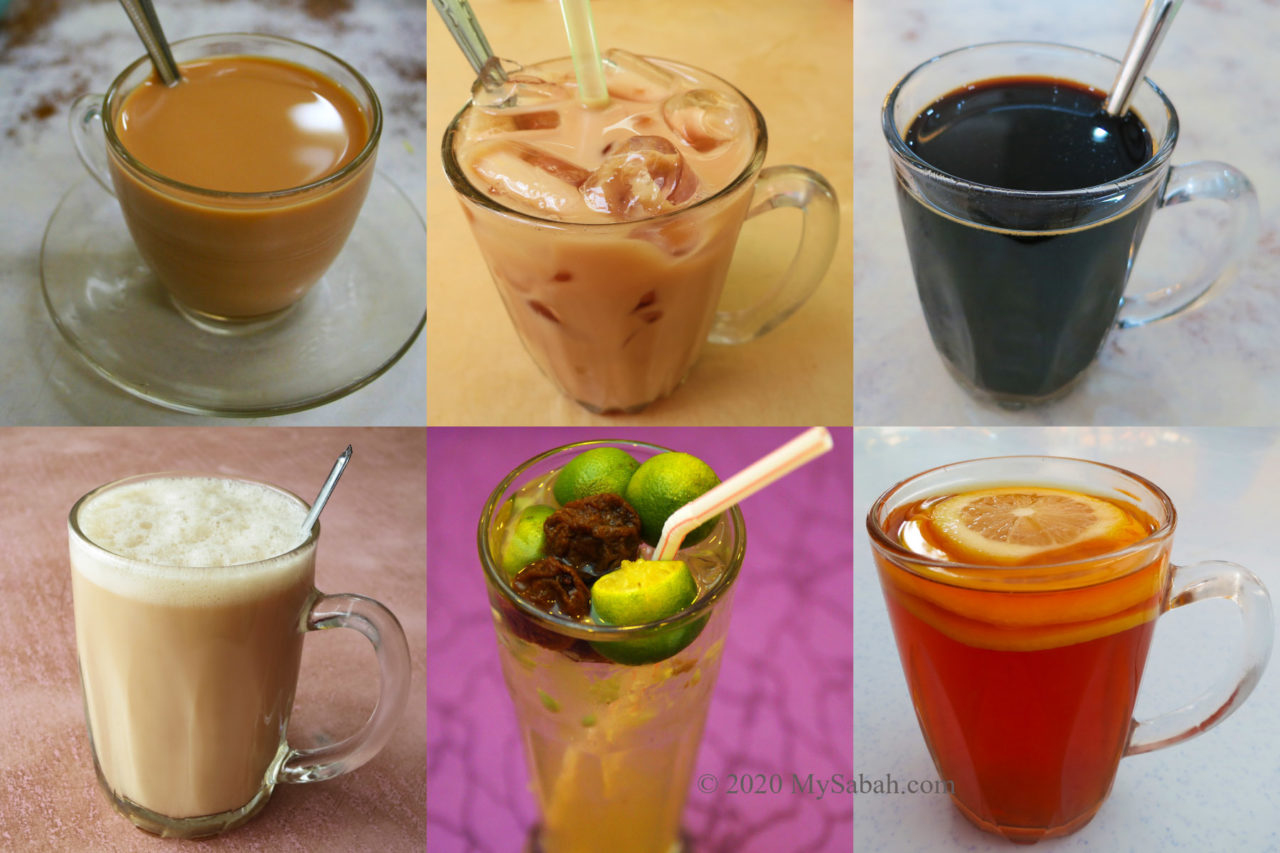
Feel free to order drink like a local with the following names:
- Kopi-O (Hot Coffee)
- Kopi-C (Hot Milk Coffee)
- Teh-C (Hot Milk Tea)
- Teh-O Ping (Ice Milk Tea)
- Kit Chai Ping (Iced Kasturi Juice)
- Teh Tarik (Pulled Tea)
(Kopi = Coffee, Teh = Tea, O = No Milk, C = Milk, Ping = Cold) So Ice Milk Tea is “Teh-C Ping”.
Entering Sabah
Malaysian citizens from Peninsular Malaysia can enter Sabah with MyKad (passport not required). Foreigner need a passport or Visa to visit Sabah. Your Passport must have a validity of at least 6 months upon entry. Visa is not required for some countries such as Australia, USA, UK and Japan. You can check if your nationality is Visa-free online .
If your country is eligible (e.g. China, India) to apply Visa (eVISA) online, you may submit your application here . You can request your travel agent to do it for you.
Goods Exempted
Individual may bring these items into Malaysia without paying customs duty:
- Wine / spirit / malt / liquor not exceeding 1 Liter in all;
- Tobacco not exceeding 225 Grams (equal to 200 sticks of cigarettes).
- Wearing apparels not exceeding 3 pieces and footwear not exceeding one pair.
- Portable electrical or battery operated appliances for personal care and hygiene not exceeding 1 unit each.
- See the complete list in Royal Malaysian Customs Department website
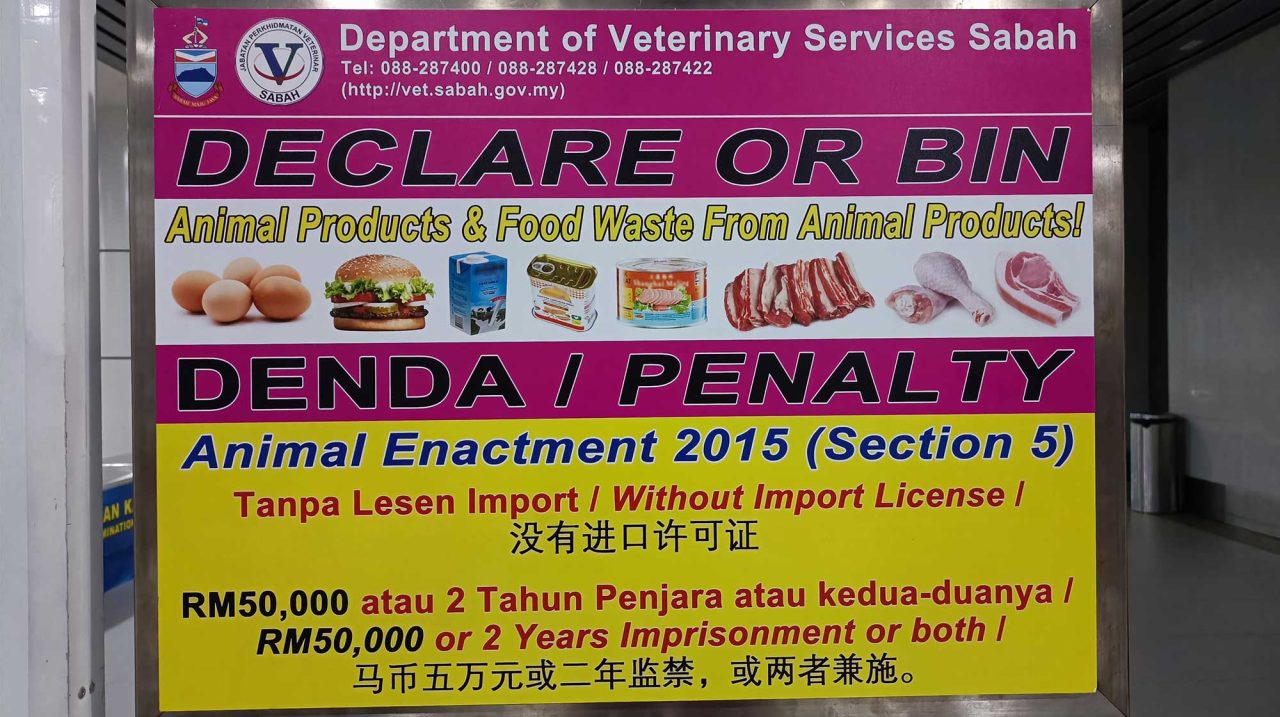
WARNING: Smuggling illicit drugs such as Marijuana, Cocaine and Heroin is a VERY SERIOUS offense in Malaysia and can result in DEATH penalty. Pornography materials and firearm (even the fake one like BB Gun) are prohibited items to bring in.
Fly to Sabah
Sabah has many direct international flight connection to major cities of East Asia and Australia. You can use Google Flights to look for direct flight and bargain tickets to fly to Sabah. If no direct flight to KK, you can fly to other cities (e.g. Kuala Lumpur, Singapore, Brunei, Taipei, Seoul, Tokyo, Hong Kong, Manila) which have direct flight to Sabah . To move around major towns / cities of Sabah, book a domestic flight with Air Asia or MASwings
Kota Kinabalu International Airport (KKIA)
KKIA is the second busiest airport in Malaysia and 7.5 KM away from Kota Kinabalu city. Most international flights to Sabah will land there. Locals and tourists also mainly rely on domestic flight to travel between east and west coast of Sabah.
Once you arrive Sabah, there are a few things you can do in KKIA:
- Get a airport taxi / bus, or call a Grab driver to pick you up
- Exchange a small amount of Malaysian currency.
- Register a local mobile phone line, which includes Internet data plan.
- Visit Tourism Malaysia information booth to get more information about your trip.
- You can even book tour package and accommodation, or rent a car there.

Note: Most businesses there open during normal working hours and some open until 10pm. McDonald’s McCafe in KKIA opens 24×7.
Public Transport
Our public transportation system is a joke. It is inconvenient to move around Sabah without a car. You can get a taxi or (e-Hailing Services) Grab driver easily in city, hotels, shopping malls and popular tourist spots. Though the taxi has the label that says “Teksi Bermeter” (Meter Taxi), they seldom use the meter. Haggle for the price before getting into the taxi. Mobile apps such as Waze, Google Map and Grab will help you a lot.
Renting a Car
Car rental is available in cities of Sabah. You can even book a car online, then collect it at the airport upon your arrival. You need a Malaysia or International Driver License to rent a car. A good place to rent car in Kota Kinabalu is Wisma Sabah.
The rental fee starts from MYR40/day for Motorbike, MYR150/day for Sedan, MYR500/day for 4-wheel Drive and MYR400/day for a Van. In Malaysia we drive at left side of the road (driver seat is at the right). The car should remain on left lane if not overtaking. Driver and passengers must fasten their seat belt or get fined heavily.
Boat Transfer
If you want to visit the islands ( Sapi , Manukan , Mamutik , Sepanggar , Mengalum ) off Kota Kinabalu city, you can depart from Jesselton Point, Sutera Harbour or Star Marina, which operates between 7am to 4:30pm. Please read my guide about these 3 boat terminals .
To visit islands of Semporna, you can book with travel agent. Most of them sells island-hopping day trip. Island resorts will provide boat transfer if you will stay on their islands. It’s NOT safe to use the unlicensed boat service, they usually wander nearby the terminal (e.g. KK fish market, Wisma Merdeka) and offer you cheaper deals.
Long Distance Bus
There are two long-distance bus terminals in Kota Kinabalu that connects to major cities / towns (e.g. Sandakan, Tawau, Lahad Datu, Semporna, Kudat) of Sabah regularly. The long distance bus is known as Bas Ekpress (Express Bus). Route to one location is usually operated by a few companies and depart in different time from 6:30am to 8:30pm.
- Inanam Bus Terminal (North) ( see Location Map ): (from KK) to Kundasang / Kinabalu Park (92 KM), Sandakan (332 KM), Semporna (530 KM), Lahad Datu (403 KM), Kunak, Tenom, etc. ( Online Ticketing available)
- Padang Merdeka Field ( see Location Map ): KK to Kota Belud (68 KM), Kudat (179 KM), Kundasang, Ranau, Tambunan, Keningau, Tenom
- KK Sentral (South) ( see Location Map ): KK to Beaufort, Kuala Penyu, Brunei, Sipitang, Bongawan, Membakut

To save time, you should consider domestic flight over buses. For example, travel from KK to Tawau by bus takes 10 hours but only 45 minutes by flight.
Accommodation
Sabah has over 500 hotels, and with range of choices from 5-star hotels to budget hostels. Nowadays you can book accommodation at attractive rate with feature-rich online booking site like Booking.com and Agoda . You can check the location with interactive map, photo gallery and reviews. AirBnB also offers you some decent choices. Most of them offers pick-up at airport.
However, if you ask for my advice, the following hotels and resorts are my personal recommendation based on reviews by tourists. Please note the prices can vary considerably depend on the (sea) view, room size, package, length of stay, etc. The fee would be higher during peak season such as Chinese New Year. Foreign tourist (non-Malaysian) needs to pay Tourism Tax (or TTx) of MYR10 per room per night for staying in hotels or registered private accommodations.
Recommended Accommodations
5-star hotels.
Price Range: MYR500-MYR1,870
- Kota Kinabalu: Shangri-La’s Tanjung Aru Resort & Spa (STAR) , The Magellan Sutera Resort , Hyatt Regency Kinabalu *, Hotel Le Meridien *, Hilton Kota Kinabalu *, Hyatt Centric Kota Kinabalu *
- Tuaran: Shangri-La’s Rasa Ria Resort & Spa
4-Star Hotels
Price Range: MYR250-MYR560
- Kota Kinabalu: Hotel Grandis *, Mercure Kota Kinabalu City Centre *, Horizon Hotel *, Promenade Hotel *
3-Star Hotels
Price Range: MYR125-MYR350
- Kota Kinabalu: Hotel Sixty3 *, Gaya Centre Hotel *, The Jesselton Hotel* , Dreamtel *
*located in City Centre of Kota Kinabalu
Island Resorts
Price Range: MYR950-MYR3,700
- Kota Kinabalu: Gaya Island Resort , Gayana Marine Resort , Bunga Raya Island Resort , Manukan Island
- Semporna: Sipadan Water Village Resort , Sipadan Mabul Resort (SMART) , Kapalai Dive Resort , Mataking Island Resort
- Sandakan: Lankayan Resort
If you want something different, go for our homestay or camping . Here are some special accommodation:
- Rungus Longhouse
- Misompuru Homestay
- Glamping on Libaran Island
- Seaventures (Dive Resort)
- Camping at Tegudon Tourism Village
- Farmstay: Kiulu Farmstay , Sabah Tea Garden
Health and Hygiene
- Government hospitals, clinics and pharmacies are available in most towns / cities.
- Treated pipe water is available in most urban and sub-urban areas. Tap water must be boiled before drinking.
- Due to hot weather, you need to prevent dehydration, sunburn, and heat stroke , by applying sunscreen and drink a lot of water.
- You will sweat a lot. Bath every day or you will stink.
- Mosquito is most active during dusk and dawn. Have an insect repellent next to you.
- Sandfly is present near mangrove swamp in evening. Its bite is itchy. Don’t scratch or it will get worse.
- Beware of jellyfish. The sting of box jellyfish can be fatal to child.
- Bacteria that cause food poisoning multiply fast in our warm weather. Eat the food while it is still hot / fresh.
- You always can find Pharmacy / Drug Store such as Watson and Guardian nearby.
- Most public toilet are wet and smelly but bearable. Bring toilet seat wipes if you want extra clean.
- Toilet paper is not provided in most toilet (except your hotels). Bring your own or you can experiment the water “bum gun”.
Things to Bring
- Clothing (for tropical climate): shirts, shorts, jean, pants, skirt, underwear, socks, pajamas, etc.
- Comfortable walking shoes and sandal
- Visa (if required)
- Credit card
- Sunscreen lotion / spray
- Sunglasses, Contact Lenses
- Phone, cable, charger & power bank
- Camera, battery and charger
- Travel plug adapter
- Toiletries: toilet paper, tooth brush & paste, soap / body wash, shampoo & conditioner, face wash, hairbrush / comb, razor & shaving cream, dental floss, mouthwash, cotton buds
- Backpack (best if come with rain cover)
- Reusable water bottle
- Personal Medicine & Supplement
- Raincoat / Poncho
- For lady: makeup, lip balm with SPF, moisturiser, facial mask, body lotion, perfume, hair ties and clips, makeup remover, cotton pads, sanitary items
- Optional items for outdoor activities: hiking shoes, insect repellent, swimwear, bikini, rash guard, hat, dry bag, beach towel, walking stick, flashlight, anti-leech socks
- International / Malaysia Driver License (if you rent a car)
- Books? Really?
You don’t need to bring any snorkeling and diving gears, which are available for rent here.
Safety & Advice
- Always book your tour with a licensed travel agent / operator. To check if a tour company is legitimate, you can refer to the member list by MATTA (Malaysian Association of Tour and Travel Agents) .
- Be vigilant for flash floods when playing near rivers or waterfalls. Flash floods can occur even on sunny days. Leave the water immediately if you notice it rising rapidly and changing to a darker color.
- Practice COMMON SENSE to avoid becoming an easy target of petty crime such as pickpocket and snatch thief.
- NEVER, EVER leave your bag unattended on car seat.
- Don’t flash your money in public.
- While dining in public places, don’t leave valuable belonging such as phone and handbag on the desk.
- Though some countries issue advisory against travelling in east coast of Sabah, security is good after more garrison are deployed to islands.
- While crossing road, watch out for motorbikes speeding between cars.
- Never trust pedestrian / zebra crossing. Keep an eye on approaching car.
- Only book your tour with licensed travel agents. Illegal tour agents don’t care about your safety and you are not insured.
- Any headhunter? No. Borneo is used to be the land of headhunters, but it’s history.
- Photocopy your National Identity Card, Passport (Photo ID page) and Credit Card, and store them separately
- Look up the contact of your embassy in KK and save it on your phone.
- Drone is forbidden in some islands and restricted zones. Ask before you fly one, and study our regulations .
(Boring) History in Brief
Sabah was part of Brunei in the 16th century. In year 1658, Brunei Sultan (King) ceded the northern and eastern part of Borneo to the Sultan of Sulu (Philippines). By 1881, Sabah was granted to British government and administered by British North Borneo Chartered Company . Sabah became a protectorate of the United Kingdom in 1888 and named as North Borneo (Kota Kinabalu was called Jesselton during that period). Except 1942-1945 under the hand of Japanese during World War II, Sabah was controlled by British until Sabah (North Borneo) gains total independence and form Malaysia with Sarawak, Malaya and Singapore on 16 September 1963.
Useful Apps
- Grab : e-hailing service, similar to Uber
- WhatsApp : almost every person and company in Sabah use this messaging apps
- Google Maps : to get around and look for restaurants and accommodation
- Waze : very useful navigation apps if you drive on your own. Also work offline.
- Foodpanda : food delivery to deliver local food to you without walking out of your room
- Boost and Alipay: e-Wallet
Useful Numbers & Contact
- Kota Kinabalu International Airport (KKIA): +6088325555
- Tourist Information Center (Sabah Tourism Board) : +60 88-212121 (E-mail: [email protected] )
- Police / Ambulance: 999
- Custom Department (Sabah): +60 88-348100
- Immigration Department (Sabah): +60 88-413657
- Queen Elizabeth Hospital I: +60 88-517555
- Queen Elizabeth Hospital II: +60 88-324600
- List of Consulates / Embassy in Kota Kinabalu City
Thanks for reading this far. Please e-mail me if you find anything incorrect (even a typo) or incomplete. Please note this is not a sponsored page . No company pays me to get recommended here.
Leave a Reply Cancel reply
Cookies on GOV.UK
We use some essential cookies to make this website work.
We’d like to set additional cookies to understand how you use GOV.UK, remember your settings and improve government services.
We also use cookies set by other sites to help us deliver content from their services.
You have accepted additional cookies. You can change your cookie settings at any time.
You have rejected additional cookies. You can change your cookie settings at any time.
Register to vote Register by 18 June to vote in the General Election on 4 July.
- Passports, travel and living abroad
- Travel abroad
- Foreign travel advice
Entry requirements
This advice reflects the UK government’s understanding of current rules for people travelling on a full ‘British citizen’ passport from the UK, for the most common types of travel.
The authorities in Malaysia set and enforce entry rules. If you’re not sure how these requirements apply to you, contact the Malaysian High Commission in the UK .
COVID-19 rules
There are no COVID-19 vaccination requirements for travellers entering Malaysia.
Passport validity requirements
Your passport must be valid for at least 6 months from the date you arrive in Malaysia. Make sure your passport is undamaged, with no pages missing.
Check with your travel provider that your passport and other travel documents meet requirements. Renew your passport if you need to.
You will be denied entry if you do not have a valid travel document or try to use a passport that has been reported lost or stolen.
Dual nationals
Malaysia does not recognise dual nationality. You can be refused entry if you’re found with a Malaysian passport and one of a different nationality. If you have dual nationality (not including Malaysian), enter and exit on the same passport.
Visa requirements
British nationals do not need a visa to visit Malaysia. You will normally be allowed to stay for 90 days on arrival. For any longer, or for a non-tourist visit, you will need a visa.
The Malaysian authorities do not tolerate illegal immigration. Do not overstay your visa or violate the terms of entry. Even if you overstay for just a few days, you can be:
- deported to the UK at your own cost
- blacklisted for future visits to Malaysia
If you are detained, you will find facilities can be poor with limited healthcare services. The British High Commission is unable to help you to remain in Malaysia or issue any document to support your overstay.
Keep a copy of your passport and visa safe in case your passport is lost. It may take time to get a replacement visa. If you cannot show your original visa or entry stamp on exit you may be treated as an overstayer, fined and blacklisted.
Applying for a visa
If you want to stay for longer than 90 days or visit for non-tourist purposes, you must apply for a visa from the nearest Malaysian diplomatic mission before you travel.
Entry to East Malaysia
If you’re travelling between Peninsular Malaysia and East Malaysia (sometimes known as Malaysian Borneo, made up of the states of Sabah and Sarawak) you will need to carry your passport. You will pass through immigration control when entering and exiting East Malaysia from and to Peninsular Malaysia, and must obtain an entry and exit stamp.
Declaration form
You must fill in the Malaysia Digital Arrival Card to enter Malaysia. You should complete this before you travel as it may be requested at check-in. You do not need to complete the arrival form if you are not passing through immigration. See the Malaysian Immigration website for further information, including exemption details.
Vaccination requirements
At least 8 weeks before your trip, check the vaccinations and certificates you need in TravelHealthPro’s Malaysia guide .
Drug screening
You could be asked to take a urine test on arrival in Malaysia if you are suspected of having used drugs before your visit. If you’re found with drugs in your bloodstream, you could be detained, or deported and blacklisted from any further visits to Malaysia. You can be charged with drug consumption even if the drugs were consumed overseas, including if they were consumed in a country where the use of that particular drug is legal.
Customs rules
There are strict rules about goods you can take into or out of Malaysia . You must declare anything that may be prohibited or subject to tax or duty.
If you are in any doubt about the legality of any items, including medications, you should declare them on entry.
Importing firearms
It’s illegal to import unlicensed firearms and ammunition into Malaysia. This includes spent ammunition and souvenirs from war museums. Do not take any weapons or replica weapons into Malaysia. You may be detained and charged if you do. If you’re convicted of dealing in illegal firearms you can be given the death penalty.
Taking money into Malaysia
You can import or export up to the equivalent of 10,000 US dollars in Malaysian ringgit without prior approval.
On entry to or exit from Malaysia, declare any cash or travellers cheques if the value is 10,000 US dollars or more. If you do not declare it, customs officials can seize your money, and you may get a fine of up to 3 million ringgit and up to 5 years’ imprisonment. Further information can be found on the Royal Malaysian Customs Department website.
Related content
Is this page useful.
- Yes this page is useful
- No this page is not useful
Help us improve GOV.UK
Don’t include personal or financial information like your National Insurance number or credit card details.
To help us improve GOV.UK, we’d like to know more about your visit today. Please fill in this survey (opens in a new tab) .
Our local experts can design your trip based on your preferences
Warning - You are using an outdated browser. Please upgrade your browser to properly view this website.

- Destinations
- Asia pacific
- Plan your trip
Planning a trip to Sabah
Visa and entry requirements
Embassies and consulates
Health and safety
Money and budgeting.
What to read
Visas and entry requirements
To enter Malaysia, you need a valid passport or visa. A disembarkation card has to be filled out and handed to Immigration officials on arrival. Even though Sabah and Sarawak are in the federation of Malaysia, you need a passport to visit these East Malaysian States.
Visa requirements. British, Irish and most Commonwealth citizens do not need a visa. Holders of US passports, for example, can enter Malaysia for three months without a visa.
Malaysian diplomatic missions overseas
Australia 7 Perth Avenue, Yarralumla ACT 2600, Canberra; tel: +61 (0) 2 6120 0300.
Canada 160 Boteler Street, Ottawa, Ontario K1N 8Y7; tel: +1 613 241 5182.
New Zealand 10 Washington Avenue, Brookyn, Wellington PO Box 9422; tel: +64 (0)4 385 2439.
UK 45-46 Belgrave Square, London SW1X 8QT; tel: +44 (0) 20 7235 8033.
US 3516 International Court, NW, Washington DC 20008; tel: +1 202 572 9700.
Getting to Malaysia
Flying is the most common means of getting to Malaysia, and KLIA is the major gateway; you will sometimes find cheaper fares to Singapore or Bangkok, and from either of these gateways you can get to Malaysia by train or plane. The national airline, Malaysia Airlines, flies from numerous destinations around the world. Many airlines like KLM, Singapore Airlines and Cathay Pacific all fly to KLIA. Budget airline AirAsia also connects to the region. Fares are best booked online. Check with the closest Tourism Malaysia Office or travel agent for more specific information. Many people travel to Malaysia quite economically on packages or tours.
Getting around Malaysia
By car. Roads are generally good except in parts of Sabah and Sarawak. The North–South Expressway, which links Singapore to Thailand, is of international standard, though you have to pay a toll to use it. Rental car companies usually provide you with an emergency contact number should your car break down. Failing that, the Automobile Association of Malaysia (AAM) has a prompt breakdown service for members (tel: 03-2161 0808).
By train. The Malaysian Railway is based in KL Sentral and offers an efficient rail service with reasonable fares across the country and to Thailand and Singapore. A railway line links Gemas to Tumpat in the northeastern state of Kelantan. In Sabah, a railway line links Kota Kinabalu to Tenom. The Kuala Lumpur-to-Singapore service is often fully booked. There is also an electric train service connecting Ipoh to KL Sentral. MYrapid runs KL’s Light Rail Transit and the Monorail and riders pay by tokens for a single journey or pass cards for multiple travel.
By bus. Buses ply the main towns. There are several companies, and tickets can be purchased at the generally very busy bus stations or online. It is best to book a day ahead. Mini-bus services are also available between popular destinations, and the fares are quite reasonable (RM10–30).
By plane. Malaysia Airlines, Berjaya Air, AirAsia and Firefly operate an extensive network of domestic flights to all major towns in Malaysia. MASwings services remote places in Sabah and Sarawak.
By boat. Regular ferry services are still in operation; the below are some of the most frequent. Note that trips can be cancelled or delayed if the weather is bad.
Local transport. Taxis, mostly air-conditioned, are readily available and fares are metered, though in some places, like Penang, cabbies do not use the meter. In such places, negotiate the fare before boarding. In cities, taxis can be found at taxi stands or flagged down anywhere. The blue-coloured premier taxis, although plusher inside, are double the rate of a budget taxi. Flag fall for the latter is RM3, and every 115m (377ft) is 10 sen while a premium taxi’s flag fall is RM4 and every 200m (656ft) is 20 sen. In Kuala Terengganu, Kota Bharu, George Town in Penang and Melaka, trishaws are a popular mode of transport for tourists and make for good photos. Rides within town limits range from RM3–30, depending on the distance.
Medical care
Most major hotels and resorts provide some medical service for minor ailments. Every town has a government hospital and major towns and cities have private clinics and hospitals. Doctors, nurses and other medical staff mostly speak English, and chances are high that they will have obtained their qualifications from Western universities.
If you have a sensitive stomach, do be cautious when ordering food and drink from hawkers’ stalls. Though the tap water is chlorinated, drink boiled or bottled water. Lay off curries and spicy foods if you're not used to such fare.
Pharmacies, many of which are in department stores, close at 9.30pm. A licensed pharmacist is usually on duty weekdays from 10am–5pm.
Health regulations. A valid vaccination certificate against yellow fever is required from any traveller above one year of age who has visited a yellow fever-infected country up to six days prior to arrival in Malaysia.
If you plan to trek in the forest, take anti-malaria pills. It is also advisable to be vaccinated against Hepatitis B or at least to have a gamma-globulin injection prior to your trip.
Crime and safety
Malaysia is generally safe, but as in any other country, some basic rules apply. Petty theft occurs in tourist areas, and some consular warnings point to a high rate of credit card fraud and snatch thieves.
• Don’t accept drinks from strangers.
• Don’t carry too much money in your wallet.
• Don’t flaunt expensive jewellery.
• Don’t leave your bags or cameras lying around unattended.
• When visiting crowded places, beware of pickpockets.
• Dress in a sensible manner.
Malaysia uses ringgit and sen. RM1=100 sen. Coins come in denominations of 5, 10, 20 and 50 sen, and notes in RM1, RM2, RM5, RM10, RM50 and RM100.
Carry a combination of cash and traveller’s cheques and/or a credit card. Cash is imperative in rural areas, but you can change traveller’s cheques and use credit cards in urban areas and established tourist areas.
Banking hours
In all states except Kelantan and Terengganu, banking hours are Monday to Friday 9.30am to 4pm. Some open on the second and fourth Saturdays of the month, 9.30am to noon. In Kelantan and Terengganu, banks open Sunday to Thursday 9.30am to 4pm.
Changing money
Most currencies can be exchanged for ringgit, but the popular ones are US dollars, British sterling pounds, euros and Singapore dollars. Licensed money changers (open from early morning until late at night) offer better rates than banks, while hotels and shopping centres levy a service charge (usually 2–4 percent).
Local and international banks handle the gamut of transactions, and automated teller machines, from which you can use your credit card to withdraw cash, are widespread in cities, towns and transport hubs.
Credit cards
The most widely used credit cards are Visa and MasterCard. Diners Club and American Express are less welcome, but accepted. Note that some retailers add a 2–3 percent surcharge for the privilege of using plastic – so ask first before paying. As with everywhere in the world, be watchful of credit card fraud. Make sure you have enough cash before you leave a city.
Tipping is not encouraged, but some tourist drivers and guides may want a reward. At major restaurants and hotels, a 10 percent service charge (plus 6 percent government tax) is added.
Budgeting for your trip
Holders of the International Student Identity Card (ISIC), the International Youth Travel Card (IYTC) and Hostelling International receive discounts at selected attractions and hotels.
Flights: A flight from KL to Kuching in Sarawak or Kota Kinabalu in Sabah can cost RM300–600, depending on when you fly and how far in advance you purchase your ticket. From time to time Malaysia Airlines, AirAsia and Firefly have online promotions, offering seat prices under RM50 (before the add-ons) for domestic destinations but for specific dates of travel.
Accommodation. Prices generally start from RM30 a night in budget places (air-conditioning, with a shared bath) to RM130 for a mid-range en-suite double room and RM450 for high-end establishments.
Meals. Food in Malaysia is relatively inexpensive, and, apart from high-end restaurants, you can eat well on a very modest budget. A three-course meal in a mid-range restaurant costs RM30–90.
Museum/attraction entry fees. Nominal admission charges of under RM5 may apply for national and state museums. Private museums charge a higher fee of RM10–20. Entrance to most galleries is free. Zoos and bird parks have higher entry charges, ranging from RM20–45.
Read more from the travel guide to Malaysia
- Useful phrases
- Malaysia home


- Countries & Regions
- International Organisations (IOs)
- Climate Change
- Counter Terrorism
- Disarmament
- Cybersecurity
- International Peacekeeping
- Singapore's Voluntary National Review
- Small States
- Sustainable Development
- Pedra Branca
- Singapore Universal Periodic Review
- Water Agreements
- Find A Singapore Overseas Mission
- Foreign Representatives To Singapore
- COVID-19 Information
- Travel Tips
- Visa Information
- I Need Help Overseas
- Passport Matters
- Legalisation of Documents
- Travel Advisories and Notices
- Useful links
- Press Statements, Transcripts & Photos
- Announcements and Highlights
- Experience Singapore
- Foreign Service Officer (Functional and Corporate)
- Foreign Service Officer (Political and Economic)
- Foreign Service Administration Specialist
- Job Opportunities
- Pre-University
- Undergraduate
- Foreign Service Scholarships
- Recruitment
- Scholarship
- Reach.gov.sg
Travel Notice Situation in Eastern Sabah
26 June 2023
Singaporeans who intend to travel to the eastern coast of Sabah should exercise vigilance and caution. They should keep themselves updated on the latest developments through official websites such as that of the Eastern Sabah Security Command ( www.facebook.com/esscomsabah ) as well as through Malaysian news outlets. Singaporeans are also advised to take all necessary precautions to ensure their personal safety, including purchasing comprehensive travel insurance and be familiar with the terms and coverage of the insurance policies. Do eRegister with the Ministry of Foreign Affairs at https://eregister.mfa.gov.sg/ so that we could contact you should the need arise. Those in need of consular assistance may contact the Singapore High Commission in Kuala Lumpur or the 24-hour Ministry of Foreign Affairs Duty Office at:
High Commission of the Republic of Singapore in Malaysia 209 Jalan Tun Razak 50400 Kuala Lumpur Tel: +60 321 616 277 Duty phone: +60 166 610 400 Email: [email protected]
Ministry of Foreign Affairs Duty Office Tanglin Singapore 248163 Tel: 6379 8800, 6379 8855 Email: [email protected]
Expand All | Collapse All
Public Health Advisory
Travellers should refer to the ICA website for the latest information on travelling to/from or transiting through Singapore. Travellers seeking to enter Singapore should comply with prevailing Public Health (including COVID-19) as well as General Entry Requirements listed on the Singapore immigration website ( http://www.ica.gov.sg/enter-transit-depart/entering-singapore ) to ensure a smooth journey.
For information on health-related entry requirements for Malaysia, travellers may refer to Malaysia’s MySafeTravel website ( https://mysafetravel.gov.my ) for more details. Travellers can stay updated on the COVID-19 situation in Malaysia by checking the Malaysian Ministry of Health’s website ( http://covid-19.moh.gov.my ).
Entry and Exit
Visa Requirements
Singaporeans do not require a visa to enter Malaysia for up to 30 days. However, for onward travel from Malaysia to a third country, Singaporeans may be required to hold a valid visa. It is thus advisable to obtain a visa for onward travel, if necessary, before the start of your journey. Applying for a visa en-route to your destination in Malaysia or at the country you intend to visit may be difficult.
Malaysia Digital Arrival Card (MDAC)
The Immigration Department of Malaysia requires foreign nationals to complete the Malaysia Digital Arrival Card (MDAC) prior to their arrival in Malaysia. However, Singapore Passport holders are exempt from this requirement at all entry points. Singaporeans who intend to enrol their fingerprints for access to automated immigration clearance via the e-gates on subsequent entry should submit the MDAC three days prior to their arrival in Malaysia.
Malaysia Automated Clearance System (MACS)
Singaporeans who have applied for use of the Malaysia Automated Clearance System (MACS) are reminded that the facility is only available at land checkpoints at Johor (Bangunan Sultan Iskandar and Kompleks Sultan Abu Bakar). MACS is meant to facilitate faster immigration clearance for exit from/entry into Johor and cannot be used as a transit facility for onward flights out of Malaysia.
General Immigration Matters
- Singapore passports must be valid for more than 6 months at the time of entry.
- When you enter or depart Malaysia, check that your passport is stamped before leaving the immigration booth.
- Do not pass the immigration booths that are unattended. You should not enter or leave Malaysia without having your travel documents processed by a Malaysian immigration officer and ensuring that your passport is stamped correctly.
- If you are entering Malaysia for internship or employment purpose, please ensure that the proper approval is obtained from the Malaysian immigration authorities prior to your arrival. Please approach the Malaysian High Commission in Singapore ( https://www.kln.gov.my/web/sgp_singapore/home ), Immigration Department of Malaysia (JIM) ( https://www.imi.gov.my ), and JIM’s Expatriate Services Division ( https://esd.imi.gov.my/portal ) for information or clarification on the relevant passes and entry requirements.
- Please ensure your passport is in good condition. Passports with signs of damage (i.e. tear, water damage) may not be accepted for entry into Malaysia.
Loss of Passport
- If your Singapore passport is lost or stolen when you are in Malaysia, make a police report immediately at the nearest local police station.
- Report the loss online via ICA e-Services immediately, if you have a valid Singpass account.
- After reporting the loss, ICA e-Services will prompt you to apply and pay for a temporary travel document, known as a Document of Identity (DOI).
- Once the online application is approved and ready for collection, the Singapore High Commission in Kuala Lumpur or Consulate-General in Johor Bahru, depending on your selection, will contact you for collection.
- If you do not have a valid Singpass account, you should bring the police report and two passport-sized photographs to the Singapore High Commission in Kuala Lumpur or Consulate-General in Johor Bahru to apply, pay, and obtain the DOI.
- The DOI, which is chargeable, is only valid for one-way travel back to Singapore.
- As there are some administrative procedures involved in issuing a DOI, our offices may not be able to issue the document immediately and you may have to extend your stay in Malaysia.
- For exiting Malaysia with a DOI, you may be required to apply for a special pass from the Malaysian Immigration Headquarters nearest to your point of departure.
- You can apply for a new passport after you have returned to Singapore.
Customs Requirements
- For a comprehensive list of dutiable and duty-free goods, as well as customs requirements, please refer to https://www.customs.gov.my/en/tp/Pages/tp_ppel.aspx for more information.
- All visitors to Malaysia are required to declare dutiable goods at the customs. There are currency exchange control restrictions on bringing large amounts of Malaysian ringgit or foreign currencies into or out of the country. Please refer to https://www.customs.gov.my/en/tp/Pages/tp_cec.aspx for more information.
Consular Assistance
Singaporeans who require consular assistance may contact the Singapore High Commission in Kuala Lumpur or the Consulate-General in Johor Bahru using the contact details provided on the sidebar. Singaporeans in Malaysia are strongly encouraged to e-register with the Ministry of Foreign Affairs at https://eregister.mfa.gov.sg/ so that they can be contacted, should the need arise.
Singaporeans may also connect with the Singapore High Commission in Kuala Lumpur through our Telegram channel ( https://t.me/SHCKL ), Facebook Page ( https://www.facebook.com/SingaporeHighComKL ), and website ( https://www.mfa.gov.sg/kl ).
Safety and Security
Take general precautions to ensure your personal security in Malaysia such as:
- Carry your personal belongings on the side away from the street.
- Do not carry too much cash or display expensive jewellery or accessories (such as watches or bags) on your person.
- Do not leave your belongings unattended when in crowded public places.
- Ensure that you have your travel documents (i.e. passport) on your person at all times.
- Do not leave important documents (like passport) or valuables in plain sight in your car. All loose electronic items, bags or belongings should be stowed away, out of sight.
- Avoid isolated, unfamiliar places and places with a high known incidence of crime especially at night and if alone. Opt for well-lit and well-travelled areas which will be safer and reduce the risk of being a victim of crime.
- There have been occasional reports of alleged scams, robbery and rape incidents involving public transport providers as well as Grab and Uber in Malaysia. Hence, it is important to exercise the usual precautions and common sense when taking public/shared transportation.
- Exercise caution and prudence at all times and avoid large gatherings and demonstrations. Monitor media reports closely or check with the Singapore High Commission in Kuala Lumpur or Consulate-General in Johor Bahru on the situation.
Travel Funds & Valuables:
- In Malaysia, major credit cards such as Visa and Mastercard are accepted by local established retailers. Avoid carrying too much cash.
- If money and valuables are stolen or lost, make a police report at the nearest police station.
- In an emergency, you can arrange for funds to be remitted to you by your family or friends through a bank. Emergency funds can also be remitted to you via the Singapore High Commission in Kuala Lumpur or Consulate-General in Johor Bahru; if your family or friends deposit funds with the Singapore Ministry of Foreign Affairs, Consular Directorate.
Malaysia imposes severe penalties including death for possession or trafficking of even small amount of illegal drugs. Do not convey or transport any parcel, especially across the border when asked by a stranger. Should such parcels contain illegal drugs, you risk being found guilty of the possession, smuggling or trafficking of drugs. You should also never leave your belongings unattended or under the “care” of any stranger.
Additional information
Driving of Foreign-registered Vehicle in Malaysia:
- Consider applying for the International Driving Permit (IDP) for driving in Malaysia. The IDP is recognised worldwide and is also a useful form of identification.
- Singaporeans in Malaysia who hold a long-term stay visa for employment or residency must obtain a Malaysia driving licence if they want to drive in Malaysia. Those who possess a valid foreign driving licence may contact the Road Transport Department of Malaysia (JPJ) to seek full information on the procedures in driving licence conversion.
- Foreigners driving vehicles in Malaysia can check and make payment for their fines issued by the Royal Malaysian Police (RMP) through the MyBayar website or mobile application. For more information, please visit the MyBayar website or RMP Traffic Department’s Facebook page.
- The High Commission in Kuala Lumpur and the Consulate-General in Johor Bahru are able to certify true copies of the Singapore driving license. For other requirements, Singaporeans may check with JPJ directly. JPJ’s contact details are: Road Transport Department of Malaysia (JPJ) Wilayah Persekutuan, Kuala Lumpur Lot 14264, Jalan Genting Klang, 53300 Setapak. Tel : +60 3 40241200
Hospitalisation and Death:
- In the case of an accident or medical emergency, call 999. Any injured or sick persons are usually brought to the nearest state hospital. A medical transfer to Singapore by ambulance is possible. However, the superintending doctor in the Malaysian hospital as well as the receiving hospital in Singapore will need to consent to the transfer. The cost of medical transfer is to be borne by the individual/medical insurance. The High Commission in Kuala Lumpur or the Consulate-General in Johor Bahru can provide a list of service providers for such medical transfers.
- In the event of the death of a Singaporean, specific approval from the local authorities (like hospital and/or police) is required before the remains can be claimed for repatriation or cremation. An undertaker can be appointed to assist in this and to obtain all other necessary related documentation.
General Travel Advice
Overseas Travel – Be Informed & Be Safe [Updated on 5 February 2024]
Singaporeans planning overseas travel are reminded to take the necessary precautions, including being prepared to deal with accidents, natural disasters or terrorist attacks. Singaporeans are also reminded to be familiar with your destination’s local laws, customs, and COVID-19 regulations.
Demonstrations do occur in major cities across the world. Such demonstrations can sometimes escalate into violence. It is important for Singaporeans to keep abreast of local news, avoid any protests or demonstrations and heed the advice of the local authorities.
When participating in outdoor leisure activities overseas, Singaporeans should be mindful that certain sporting activities, especially in open seas, may carry risks. Besides ensuring that one has the physical competencies and appropriate condition to undertake the activity, every effort should be made to ascertain if the trip organiser or guide is reliable and competent, and that appropriate safety and contingency plans are in place. When in doubt, Singaporeans should consult the relevant professional bodies or sporting associations for specific advice.
For those planning to travel, here are some tips:
Before travelling
- Familiarise yourself with our network of overseas missions.
- Purchase comprehensive travel insurance and be familiar with the terms and coverage.
- Equip yourself with research about your destination’s entry requirements, current situation, local laws and customs.
- eRegister with us on our website ( www.mfa.gov.sg ) so that we may reach out to you during an emergency.
While travelling
- Always take care of your personal safety, remain vigilant and monitor local weather news, advisories, and security developments.
- Exercise caution around large gatherings and avoid locations known for demonstrations or disturbances.
- Be prepared for possible delays and last-minute changes in travel plans especially during unforeseen events such as natural disasters, social unrest or terror attacks.
- Stay connected with your friends and family. Inform them of your whereabouts and provide them with your overseas contact details.
- In the event that you require consular assistance, please contact the nearest Singapore Overseas Mission or call the Ministry of Foreign Affairs Duty Office at +65 6379 8800/+65 6379 8855.
Advisory: Email Scams
There have been reports of individuals receiving scam emails/messages purportedly sent from friends in distress overseas. These emails/messages typically originate from an email address/social media known to the receiver bearing claims of the sender getting into trouble overseas and urgently requesting financial assistance. The sender would also claim to have approached a Singapore Embassy/Consulate and the local Police for help to no avail.
MFA takes the safety of all Singaporeans very seriously. Singaporeans in distress approaching our Overseas Missions for assistance will be rendered with all necessary consular assistance. If you receive such emails/messages from purported friends seeking funds transfers, we strongly advise you to call them first to verify the authenticity of the emails/messages before responding to their request. It is also not advisable to give out any personal information such as NRIC/passport numbers, address, telephone number, etc. Any form of reply, even one of non-interest, could result in more unsolicited emails. Members of the public who suspect that they have fallen prey to such scams should report the matter to the Police immediately. Should Singaporeans abroad require consular assistance, they can contact the nearest Singapore Overseas Mission or call the Ministry of Foreign Affairs 24-hr Duty Office at +65 6379 8800/+65 6379 8855.
The Ministry of Foreign Affairs is a ministry of the Government of Singapore responsible for conducting and managing diplomatic relations between Singapore and other countries and regions.
Travel Page

Search Smartraveller

Latest update
Exercise normal safety precautions in Malaysia.
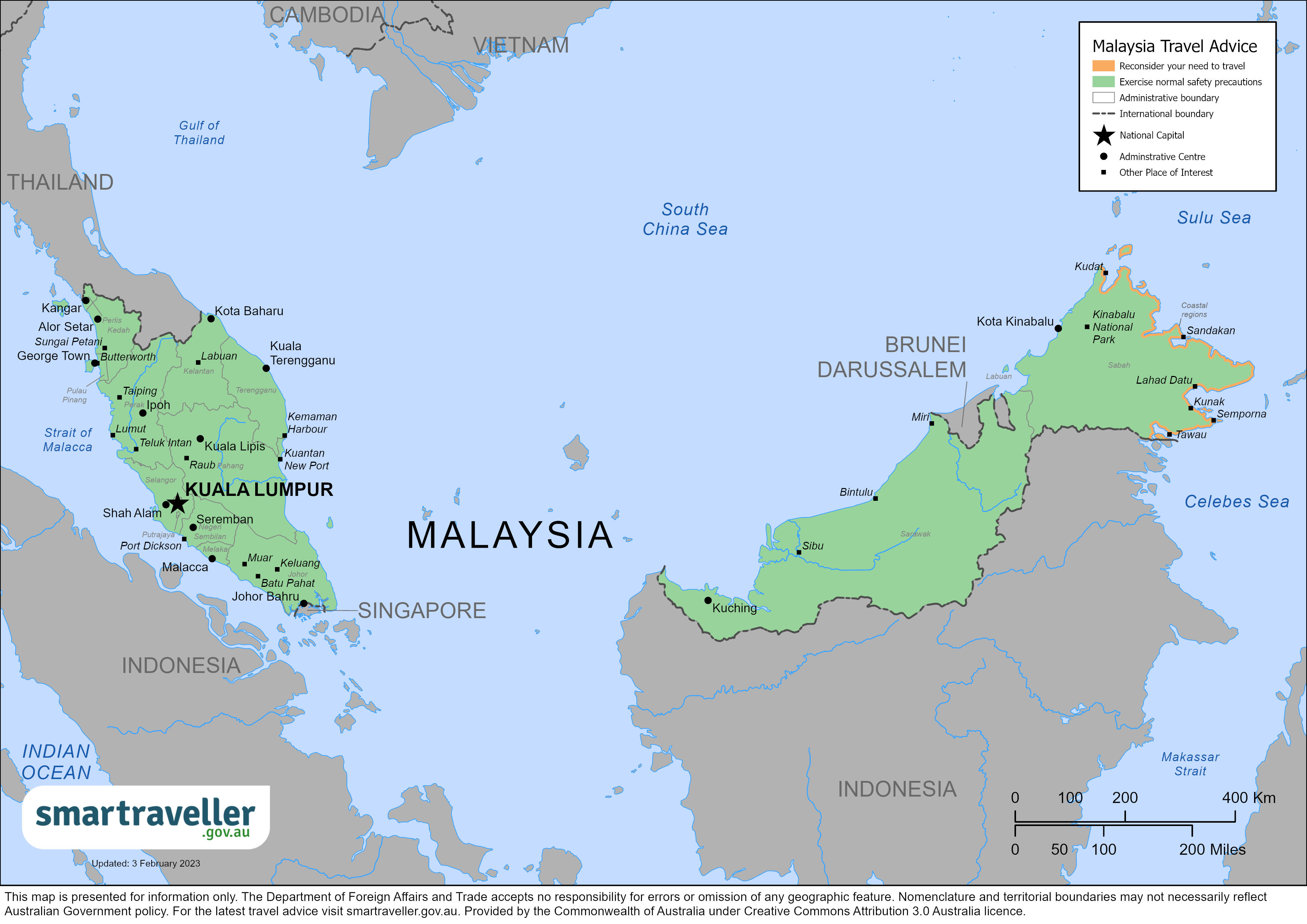
Malaysia (PDF 367.29 KB)
Asia (PDF 2.21 MB)
Local emergency contacts
Fire and rescue services, medical emergencies.
Call 999 or contact the Royal Malaysia Police Operations Centre on 321 159 999 or 322 662 222.
Advice levels
Reconsider your need to travel to the coastal region of eastern Sabah, including the islands, dive sites and associated tourist facilities.
Reconsider your need to travel to the coastal region of eastern Sabah, including the islands, dive sites and associated tourist facilities, due to the high threat of kidnapping. The risk of kidnapping increases on the water and waterfront after nightfall and is highest in the area between the towns of Sandakan and Tawau.
See Safety .
- There is a risk of terrorism in Malaysia. Terrorism is a global threat. Attacks could be random and small-scale. Possible targets could include tourist areas and a range of other locations frequented by foreigners (see Full Advice - Safety below), including in Kuala Lumpur. Take official warnings seriously. There was an armed attack on a police station in Johor Bahru on 17 May in which two police officers were killed.
- There's an ongoing high risk of kidnapping in the coastal areas of eastern Sabah. There have been a number of attempted and successful kidnappings. This includes islands, dive sites and tourist facilities. If, despite our advice, you travel to these areas, get professional security advice. Obey all local governments' curfews.
- Petty crime is common. Bag-snatching, including by thieves on motorbikes, happens often. When walking, hold your bag on the opposite side to the traffic. Safeguard your belongings, especially in shopping centres, at the airport and on trains. Credit card fraud is common. Always keep your credit card in sight when paying for purchases.
- Assault, sexual assault, robbery and drink spiking can occur, including in tourist areas of Kuala Lumpur and Penang. Don't leave your food or drinks unattended. Never accept food, drinks, cigarettes or gum from strangers. Stay with people you trust at parties, bars, nightclubs and taxis.
- Piracy in South-East Asian waters is an ongoing problem. Avoid travelling by boat in the southern Sulu Sea. If you intend to travel in the region by boat, check the International Maritime Bureau's piracy reports . Arrange personal security measures.
Full travel advice: Safety
- Strict rules control the importation of prescription and non-prescription medication. If you plan to bring medication, check if it's legal in Malaysia.
- Dengue fever is common, including in major urban areas. Zika virus is also a risk. Malaria is a risk in rural areas. Other insect-borne diseases include chikungunya, filariasis and Japanese encephalitis.
- Rabies is present in Malaysia. It's fatal without immediate treatment. Avoid dogs, monkeys and other mammals. Get medical help straight away if an animal bites or scratches you.
- Waterborne, foodborne, parasitic and other infectious diseases are common. These include hepatitis, tuberculosis, typhoid and cholera. Drink only boiled or bottled water. Avoid raw or undercooked food.
- Private hospitals in major cities are of an international standard. You'll need to pay up-front at all hospitals unless you have travel insurance, and your travel insurance policy covers your hospitalisation. Services are more limited in rural areas. Government hospitals require a deposit even if you have travel insurance.
- Cases of pertussis (whooping cough) have increased in Sabah. Ensure you're immunised against pertussis and practice good personal hygiene.
Full travel advice: Health
- If you're suspected of using drugs, you may be required to take a urine test on arrival in Malaysia. This includes if you're travelling from a country where possession and use of drugs such as cannabis is legal. Penalties for drug offences are severe.
- Don't use, carry or traffic illegal drugs. Punishments include the death penalty.
- It's unclear if surrogacy is legal under Malaysian civil law and what conditions apply. Get legal advice before arranging a surrogacy.
Malaysian law requires that you carry identification, such as your passport or a Malaysian Immigration Issued Card (IKAD), with you at all times. If you are asked by police and are unable to provide it, you may be detained until you can present valid identification.
- Malaysia is a multicultural but mostly Islamic country. Many areas have conservative standards of dress and behaviour, including at religious sites and government offices. Get advice on local customs.
- Malaysia enforces some aspects of sharia law. These laws apply to all Muslims, including visitors from Australia. Research laws that apply to you before you travel.
- Malaysia doesn't recognise dual nationality. Always travel on your Australian passport. If Malaysian authorities find out you're a dual citizen, you may need to renounce one of your citizenships immediately, or you may not be permitted to depart Malaysia.
Full travel advice: Local laws
You must complete a Malaysia Digital Arrival Card (MDAC) before arrival in Malaysia. The MDAC must be submitted through the Malaysian Immigration website . See the Malaysian Immigration website for further information, including exemption details.
- In most circumstances, you can get a 90-day tourism visa on arrival. Entry and exit conditions can change at short notice. Contact the nearest Malaysian High Commission, Embassy or Consulate for the latest details.
- Malaysia has an auto gate facility for visitors from several countries, including Australia. The option to use the manual counter for a visa is still available. To use the auto gate facilities, Australian travellers must have a passport valid for at least 6 months and must complete and submit their Malaysian Digital Arrival Card (MDAC) 3 days before arriving. The auto gate facility is unavailable for Australian passport holders with Malaysian permanent residency or a long-term pass. This auto gate facility is available at Kuala Lumpur International Airport Terminals 1 and 2. Further information can be found on the Malaysia Digital Arrival Card website.
- Monitor the websites of the Malaysian Department of Immigration, My Safe Travel , the Malaysian Ministry of Health , and social media for any changes to entry requirements. Before travel, confirm entry requirements with the Malaysian High Commission or Consulate-General in Australia .
Full travel advice: Travel
Local contacts
- The Consular Services Charter details what the Australian Government can and can't do to help you overseas.
- For consular help, contact the Australian High Commission in Kuala Lumpur .
- To stay up to date with local information, follow the High Commission's social media accounts.
Full travel advice: Local contacts
Full advice
Terrorist attacks could happen in Malaysia. Attacks could be random and may affect locations popular with foreigners or during major events or holidays that attract large crowds.
Malaysian authorities have arrested people for planning terror attacks. This includes attacks against entertainment venues in Kuala Lumpur.
There was an armed attack on a police station in Johor Bahru on 17 May in which two police officers were killed.
Other possible targets include:
- hotels, clubs, restaurants and cafes
- markets and shopping malls
- places of worship or religious holidays
- outdoor recreation events
- tourist areas
- government facilities
- public transport
To stay safe:
- be alert to possible threats, especially in public places
- be cautious around places known to be possible terrorist targets
- report any suspicious activity or items to police
- check the media for any new or emerging threats
- take official warnings seriously
- follow the advice of local authorities
If there's an attack, leave the area as soon as it's safe.
Terrorism is a threat worldwide.
More information:
Terrorist threats
Overland travel through Thailand
Read our travel advice for Thailand if you're planning to go there overland.
Avoid travelling to or through the far southern provinces of Thailand.
Kidnapping occurs across the world with political, ideological, and criminal motives. Foreigners, including Australians, have been kidnapped overseas whilst travelling. Kidnaps can happen anywhere, anytime, including in destinations that are typically at lower risk.
There's an ongoing high threat of kidnapping in the coastal areas of eastern Sabah, including islands, dive sites and other tourist facilities.
Extremists based in the southern Philippines are active in the area between the towns of Sandakan and Tawau in eastern Sabah.
Foreigners have been kidnapped from the nearby islands of Sipadan and Mataking and surrounding waters.
Some attempted and successful kidnappings have happened in coastal areas of eastern Sabah in recent years.
- In April 2024, two Malaysian Maritime Enforcement Agency personnel were injured in a shootout with a suspicious vessel while on patrol near Kunak.
- In May 2021, Malaysian authorities arrested eight suspected Abu Sayyaf militants who they suspect may have been planning kidnappings in Malaysia.
- In September 2019, 3 fishermen were abducted in the waters off Lahad Datu.
- In June 2019, 10 fishermen were abducted in waters between Lahad Datu, Sabah and Sitangkai, Southern Philippines.
- In December 2018, 3 fishermen were abducted from Pegasus Reef near Kinabatangan, Sabah.
- In November 2016, militants based in the southern Philippines attacked a yacht in waters between eastern Sabah and the Sulu archipelago. One German national was killed and another kidnapped and later killed. Further in 2016, some commercial seamen were kidnapped from cargo vessels in the area.
- In May 2015, gunmen entered a local seaside restaurant in Sandakan and abducted the manager and one customer.
Malaysian authorities increased security in the region in response to kidnapping incidents. The Sabah Government has restricted the use of waterways.
Security measures
There's a 6pm to 6am curfew on water travel in 6 coastal districts of eastern Sabah state. This includes offshore areas up to 3 nautical miles (5.5km) from the coast.
All vessels travelling in the waters off Lahad Datu and Sandakan in daylight hours must get a permit or permission from police.
Vessels must travel only on designated routes.
There's a ban on resort-organised water activities at night. This includes diving and fishing.
Authorities established the Eastern Sabah Security Zone (ESSZone), which includes the regions of:
- Kinabatangan
- Kota Marudu
There's an increased presence of security forces in the ESSZone.
Authorities may extend the water travel curfew each fortnight. If you travel by water during curfew hours without permission, authorities could fine you or jail you for up to 6 months.
If, despite our advice, you travel to an area with a high risk of kidnapping, our ability to provide consular assistance in these destinations will be limited.
To reduce the risk of kidnapping:
- always be alert to your personal security and surroundings
- get professional security advice for travel in locations with a heightened kidnap risk
- check your accommodation has appropriate security measures
- avoid isolated locations, particularly when travelling alone
- notify family or friends of planned travel and share your location
- avoid talking about your money or business affairs
- use ATMs in public places and during daylight hours
- avoid giving personal details to strangers online or over the phone
The Australian Government's longstanding policy is that it doesn't make payments or concessions to kidnappers. Ransom payments to kidnappers have funded further terrorist attacks and criminal activity. Paying a ransom to terrorist groups will likely break Australian counter-terrorism financing laws.
Civil unrest and political tension
You could encounter protests or demonstrations on the streets or at certain venues.
Protest activity could lead to violence and disrupt public services, including public transport, and cause traffic congestion. However, this is rare.
Police permission is needed for public gatherings and demonstrations. If you take part in a protest or demonstration, authorities could arrest and deport you.
Avoid protests and demonstrations.
During periods of unrest:
- check the news and other sources for information on planned and possible unrest or strikes
- plan your activities to avoid unrest on national or commemorative days
- be ready to change your travel plans
If civil unrest disrupts your transport plans, contact your airline, travel agent or insurer for help.
Demonstrations and civil unrest
Petty crime
Petty crime is common.
Opportunistic pickpocketing and snatch-and-grab robberies happen often where thieves snatch handbags, shoulder bags, jewellery, mobile phones and other valuables from pedestrians.
Hotspots include busy pedestrian crossings near major shopping malls, including within the KLCC area.
Motorcyclists, and sometimes thieves in other moving vehicles, pull bags from victims. This often causes injuries.
Smash-and-grab attacks against slow-moving and parked vehicles also happen.
To avoid petty crime:
- don't carry bags that are easy to snatch
- walk on footpaths when you can and stay away from the curb
- hold your bag on the opposite side to the traffic
- when driving or parking your car, keep valuables out of sight
- always keep vehicle windows up and doors locked, even when moving
Handbags, expensive watches, jewellery, mobile phones and cameras are tempting targets for thieves.
Many travellers have lost passports and other valuables to thieves on trains and at airports.
Carry only what you need and leave other valuables, in a secure location.
Thieves sometimes work in groups at busy shopping centres. One or more may approach you with stories of distress or warnings for your safety. When you're distracted, others steal your belongings.
Watch your personal belongings, especially:
- in crowded areas and during holiday periods
- when travelling on trains from the airport
- at airports
Be wary of approaches from strangers, especially in shopping centres.
Credit card fraud
Credit card fraud is common.
Credit cards are often copied for illegal use. This can happen anywhere, from small shops to large department stores and hotels.
Always keep your credit card in sight.
Online scams
Online scams have increased in recent years. Scammers often pretend to be people in need of financial help.
They prey on people looking for companions on online dating websites.
To protect yourself from being scammed:
- be wary of people asking for money
- don't send money or provide your bank details to anyone you don't know
- be careful when sharing personal information with people you haven't met in person
Scams involving gambling are also common.
Violent crime
You could experience violent crime in Malaysia. Australians have been victims of violent crime in Kuala Lumpur, Penang and other areas of the country. You should exercise vigilance and take sensible precautions. If you're a victim of crime, inform the local police and get a police report.
Incidents of assault, sexual assault, robbery and drink spiking, including in tourist areas of Kuala Lumpur and Penang have occured. Don't leave your food or drinks unattended. Never accept food, drinks, cigarettes or gum from strangers. Stay with people you trust at parties, bars, nightclubs and taxis.
To stay safe while using taxis:
- don't hail taxis on the street, especially after dark
- book taxis by phone at a shopping centre taxi desk
- check there's a licence with photo on the dashboard or seat back before getting into a taxi
- check the driver matches the photo.
If you're alone in a taxi, sit in the back seat. Keep your belongings with you in the taxi.
If your taxi stops to pick up other passengers, get out of the taxi when it's safe to do so. Taxi drivers aren't allowed to pick up extra passengers, but it sometimes happens.
E-hailing services are available. Use the same precautions as taxis.
Cyber security
You may be at risk of cyber-based threats during overseas travel to any country. Digital identity theft is a growing concern. Your devices and personal data can be compromised, especially if you’re connecting to Wi-Fi, using or connecting to shared or public computers, or to Bluetooth.
Social media can also be risky in destinations where there are social or political tensions, or laws that may seem unreasonable by Australian standards. Travellers have been arrested for things they have said on social media. Don't comment on local or political events on your social media.
More information:
- Cyber security when travelling overseas
Climate and natural disasters
Malaysia experiences severe weather and natural disasters , including:
- earthquakes
- severe rainstorms
If there's a natural disaster:
- secure your passport in a safe, waterproof location
- keep in contact with your friends and family
- monitor local media and weather reports
- check with tour operators before travelling to affected areas
Register with the Global Disaster Alert and Coordination System to receive alerts on major disasters.
Earthquakes and tsunamis
Earthquakes can happen in Malaysia.
In 2018, a 5.2 magnitude earthquake hit Sabah. No deaths or injuries were reported. The earthquake's tremors were felt and climbing activities were suspended.
Coastal regions of the world can experience tsunamis. Malaysia and its neighbours are vulnerable to earthquakes, which make destructive tsunamis more likely.
US Tsunami Warning Centre
Severe weather
Flooding and landslides are common during the wet season which is usually from October to February.
Severe rainstorms can result in deaths and extensively damaged infrastructure.
Essential services can be interrupted.
Tours and adventure activities
The safety standards you might expect of transport and tour operators aren't always met. This includes for adventure activities, such as diving.
Operators may not provide enough safety equipment. They also may not pay attention to maintenance standards and safety precautions.
If you plan to do a tour or adventure activity:
- check your travel insurance covers you for it
- ask and insist on minimum safety requirements
- use available safety equipment, such as life jackets or seatbelts
If appropriate safety equipment isn't available, use another provider.
Piracy in South-East Asian waters is an ongoing problem, especially in the:
- Strait of Malacca
- waters between Sabah and the southern Philippines
The International Maritime Bureau (IMB) issues weekly piracy reports.
Avoid travelling by boat in the southern Sulu Sea. This includes waters between Sabah, Malaysia and Palawan in the Philippines.
If you decide to travel by boat in these regions:
- check IMB piracy reports
- get local advice
- arrange security measures
Travelling by boat
- Going on a cruise
Travel Insurance
Get comprehensive travel insurance before you leave.
Your policy needs to cover all overseas medical costs, including medical evacuation. The Australian Government won't pay for these costs.
You'll probably need a specialised insurance policy that covers travel to high-risk destinations if, despite our advice, you're travelling to the coastal region of eastern Sabah.
If you can't afford travel insurance, you can't afford to travel. This applies to everyone, no matter how healthy and fit you are.
If you're not insured, you may have to pay many thousands of dollars up-front for medical care.
- what activities and care your policy covers
- that your insurance covers you for the whole time you'll be away
Physical and mental health
Consider your physical and mental health before you travel, especially if you have an existing medical condition.
See your doctor or travel clinic to:
- have a basic health check-up
- ask if your travel plans may affect your health
- plan any vaccinations you need
Do this at least 8 weeks before you leave.
If you have immediate concerns for your welfare or the welfare of another Australian, call the 24-hour Consular Emergency Centre on +61 2 6261 3305 or contact your nearest Australian Embassy, High Commission or Consulate to discuss counselling hotlines and services available in your location.
- General health advice
- Healthy holiday tips (Healthdirect Australia)
Medications
Not all medication available over the counter or by prescription in Australia is available in other countries. Some may even be considered illegal or a controlled substance, even if prescribed by an Australian doctor.
If you plan to bring medication, check if it's legal in Malaysia. Take enough legal medicine for your trip.
Strict rules control the importation of prescription and non-prescription medication. Contact the high commission or embassy of Malaysia to check what documentation local authorities may need you to have. Further information can be found on the Pharmaceuticals Services website.
Carry a copy of your prescription or a letter from your doctor stating:
- what the medication is
- your required dosage
- that it's for personal use
More information:

Health risks
Smoke haze often happens from June to October, but it can happen at any time.
Check the haze situation and any health warnings the Malaysian Government issues.
When haze levels are high, authorities recommend limiting outdoor activity. Get your own medical advice.
- World Air Quality
Insect-borne diseases
Dengue is common, including in major urban areas. Sometimes serious outbreaks happen.
There's no vaccination or treatment available for dengue fever.
Zika virus is a risk. There's no vaccination for it.
If you're pregnant, the Australian Department of Health recommends you:
- discuss any travel plans with your doctor
- consider deferring non-essential travel to affected areas
The Zika virus bulletin includes advice on how to minimise Zika virus risks.
Malaria is a risk in rural areas. It's less common in urban and coastal areas. Consider taking medicine to prevent malaria.
Outbreaks of other insect-borne diseases can happen. This includes chikungunya and filariasis .
Reported cases of Japanese encephalitis have increased in recent years. Get vaccinated against Japanese encephalitis before you travel
The risk of contracting insect-borne diseases increases during the wet season.
To protect yourself from disease:
- ensure your accommodation is insect-proof
- always use insect repellent
- wear long, loose, light-coloured clothing
Ministry of Health Malaysia
Rabies is a potentially fatal viral disease. It's found in dogs, monkeys, bats and other mammals.
The most recent cases were reported in Sarawak. It was transmitted through feral dog and cat bites.
Rabies can also be contracted when a rabid animal's saliva gets directly into your eyes, nose, mouth or broken skin.
Avoid direct contact with dogs and other mammals.
If a dog, monkey or other mammal bites or scratches you, use soap and water straight away to wash the wound thoroughly.
Get urgent medical attention.
Other health risks
Waterborne, foodborne, parasitic and other infectious diseases are common.
These include:
- tuberculosis
- hand, foot and mouth disease (HFMD)
Serious outbreaks sometimes occur.
- drink boiled water or bottled water with sealed lids
- avoid ice cubes
- avoid uncooked and undercooked food, such as salads
- wash your hands often and thoroughly
Get medical attention if you suspect food poisoning, or if you have a fever or diarrhoea.
Cases of pertussis (whooping cough) have increased in Sabah since the beginning of 2023. If you're planning to travel to Sabah:
- ensure you're immunised against pertussis
- practice good personal hygiene including frequent hand washing, not sharing drinks or lip balm
- keep your distance from people who appear sick
- seek medical attention if you develop symptoms
Infectious diseases
Marine stings
Stings from jellyfish and other marine animals can be fatal.
Ask local authorities, your tour operator or hotel about:
- swimming conditions
- precautions to take
- other dangers
Black henna tattoos
Avoid temporary black henna tattoos as they often contain a dye that can cause serious skin reactions.
Medical care
Medical facilities.
You can find private hospitals with international-standard facilities in major cities.
Public hospitals in major cities have a good range of medical services. However, access can be slow. Services are more limited in rural areas.
Most private hospitals need a cash deposit or a confirmation of insurance before they will admit you. They also expect immediate payment for services.
You need to pay up-front for treatment at government hospitals.
There are decompression chambers in:
Medical tourism
Medical tourism , including for cosmetic surgery, is common.
Standards at discount and uncertified medical facilities can be poor.
Serious and possibly life-threatening complications can result.
Before travelling for medical tourism:
- research and choose medical service providers carefully
- don't use discount or uncertified medical service providers
- check your travel insurance covers you if things go wrong with your surgery, as most don't
You're subject to all local laws and penalties, including those that may appear harsh by Australian standards. Research local laws before travelling.
If you're arrested or jailed, the Australian Government will do what it can to help you under our Consular Services Charter . But we can't get you out of trouble or out of jail.
If you're suspected of using drugs before you visit Malaysia, you may be required to take a urine test on arrival. This includes if you're travelling from a country where possession and use of drugs such as cannabis is legal.
Penalties for drug offences are severe, including drug possession and the presence of drugs in your bloodstream. Malaysia still carries the death penalty for drug trafficking.
Carrying or using drugs
Surrogacy laws
Malaysian civil law applies to everyone in Malaysia. Under this law, it's unclear if surrogacy is legal and what conditions apply.
Under sharia law, surrogacy is illegal. However, sharia law only applies to Muslims.
Surrogacy isn't practised openly in Malaysia. If you want to pursue surrogacy, it's mostly a private arrangement between you and the surrogate.
Get independent legal advice before entering into a surrogacy arrangement.
- Going overseas for international surrogacy
- Going overseas to adopt
Malaysia enforces some aspects of sharia law. These laws apply to all Muslims, including those from Australia.
Research laws that apply to you before you travel.
Serious crime
Crimes that may attract corporal punishment include:
- certain drug offences
- commercial crime
LGBTQIA+ law
Same-sex sexual relations are illegal.
Punishment can include whipping and up to 20 years in prison for same-sex acts involving either men or women.
LGBTQIA+ travellers
Drink driving
Driving under the influence of drugs or alcohol is a serious offence, which can result in fines and/or a jail sentence. Authorities strictly enforce these laws.
Australian laws
Some Australian criminal laws still apply when you're overseas. If you break these laws, you may face prosecution in Australia.
Staying within the law and respecting customs
Local customs
Malaysia is a multicultural but mostly Islamic country.
Standards of dress and behaviour are conservative in many areas. This includes at religious sites and government offices.
Always respect local traditions, customs, laws and religions.
Learn about customs at your destination. If in doubt, get advice from locals. Take care not to offend cultural or religious beliefs.
The Islamic holy month of Ramadan is observed in Malaysia. Respect religious and cultural customs and laws at this time.
During Ramadan, eating, drinking and smoking may be illegal in public during the day. If you're not fasting, avoid these activities around people who are. Seek local advice to avoid offence.
Explore our Ramadan page to learn more, including dates for Ramadan.
Dual citizenship
Malaysia doesn't recognise dual nationality.
If you're a dual citizen, this limits the consular services we can give if you're arrested or detained.
Always travel on your Australian passport .
If Malaysian authorities find out you hold both Australian and Malaysian citizenship, you may need to renounce either your Australian or Malaysian citizenship straight away, or you may not be permitted to depart Malaysia.
Dual nationals
Visas and border measures
Every country or territory decides who can enter or leave through its borders. For specific information about the evidence you'll need to enter a foreign destination, check with the nearest embassy, consulate or immigration department of the destination you're entering.
In most circumstances, Australian passport holders can get a 90-day tourism visa on arrival.
Arrange a visa before you travel if you're visiting for:
- volunteer work
Entry and exit conditions can change at short notice. Contact the nearest high commission, embassy or consulate of Malaysia for details about visas, currency, customs and quarantine rules.
If you breach your visa conditions or overstay your visa, authorities may fine, detain or deport you.
Always check the correct dates are on the visa stamp placed in your passport.
Follow immigration rules, including your visa conditions.
Border measures
Malaysia has an auto gate facility for visitors from several countries, including Australia. The option to use the manual counter for a visa is still available. To use the auto gate facilities, Australian visitors must have a passport valid for at least 6 months and must complete and submit their Malaysian Digital Arrival Card (MDAC) 3 days before arriving.
The auto gate facility is unavailable for Australian passport holders with Malaysian permanent residency or a long-term pass. This auto gate facility is available at Kuala Lumpur International Airport Terminals 1 and 2. Further information can be found on the Malaysia Digital Arrival Card website.
Entry requirements may change at short notice. Monitor the websites of the Malaysian Department of Immigration , My Safe Travel , the Malaysian Ministry of Health , and social media for any changes. Before travel, confirm entry requirements with the Malaysian High Commission or Consulate-General in Australia .
Staying in Malaysia
You should ensure you keep your visa up to date.
Other formalities
Foreigners need to provide biometric identification (fingerprints and/or face) on arrival.
Children aged younger than 12 years and visitors with finger disabilities don't have to do this.
Some countries including Malaysia won't let you enter unless your passport is valid for more than 6 months after you plan to leave that country. This can apply even if you're just transiting or stopping over.
Some foreign governments and airlines apply the rule inconsistently. Travellers can receive conflicting advice from different sources.
You can end up stranded if your passport is not valid for more than 6 months.
The Australian Government does not set these rules. Check your passport's expiry date before you travel. If you're not sure it'll be valid for long enough, consider getting a new passport .
Lost or stolen passport
Your passport is a valuable document. It's attractive to people who may try to use your identity to commit crimes.
Some people may try to trick you into giving them your passport. Always keep it in a safe place.
If your passport is lost or stolen, tell the Australian Government as soon as possible:
- In Australia, contact the Australian Passport Information Service .
- If you're overseas, contact the nearest Australian embassy or consulate .
Passport with ‘X’ gender identifier
Although Australian passports comply with international standards for sex and gender, we can’t guarantee that a passport showing 'X' in the sex field will be accepted for entry or transit by another country. Contact the nearest embassy, high commission or consulate of your destination before you arrive at the border to confirm if authorities will accept passports with 'X' gender markers.
More information:
- LGBTQIA+ travellers
The official currency is the Malaysian Ringgit (MYR).
When you depart, declare any MYR over MYR30,000, $US10,000 or equivalent. This covers all forms of currency, not only cash.
You can take larger amounts out of the country if you declare it when you arrive.
ATMs are widely available.
Local travel
If you travel between Peninsular Malaysia and East Malaysia, you need your passport. East Malaysia includes Sabah and Sarawak.
Check if your travel insurance policy covers you for any related damage and injuries if you plan to hire:
- a motorcycle
- any other vehicle
Driving permit
To drive in Malaysia, you need both:
- a valid Australian driver's licence
- an International Driving Permit (IDP)
Get your IDP before you leave Australia.
If you don't have both, you need to apply for a Malaysian licence.
Driving or riding
Road travel
Motorcyclists are a common traffic hazard. They often:
- weave through traffic
- drive through red lights and pedestrian crossings
- travel on the wrong side of the road
Motorcyclists have been increasingly confronting drivers who shout, gesture or toot their horn at them. They sometimes assault drivers.
You're more likely to die in a car accident in Malaysia than in Australia.
To stay safe, drive carefully and avoid road rage.
On a motorcycle, always wear a helmet.
Some taxi drivers, especially in tourist spots or when roads are jammed, don't use their meter. This is illegal.
Malaysia's taxi regulator has an English-language hotline for reporting problems. To make a report, call 1 800 88 7723 and provide the:
- vehicle number
- taxi company name
- time, date and location of the incident
- name of the driver if known
Always ask if the driver will use the meter, or agree the fare, before you get in a taxi.
At the start of your trip, take note of the vehicle number, the taxi company name and the name of the driver.
Public transport
There have been fatal and other serious accidents involving long-distance tour buses. This often happens at night or in bad weather.
If you plan to travel by bus, choose a company with a good reputation and avoid overnight travel.
Transport and getting around safely
In recent years, several passenger boats have sunk due to overloading and poor maintenance.
Before booking tickets on a passenger ferry, speedboat or other vessel, check there is appropriate safety equipment available.
Don't travel on any vessel that looks overloaded or in poor condition.
When you board, confirm there are enough life jackets for all passengers. Know where they are.
In bad weather, wear a life jacket, even if others don't.
There is a curfew on travel by water from 6pm to 6am in the coastal districts of eastern Sabah. See ( Safety) .
Airline safety
DFAT doesn't provide information on the safety of individual commercial airlines or flight paths.
Check Malaysia's air safety profile with the Aviation Safety Network.
National parks
National parks are protected areas, and some are home to ethnic minority groups.
Be respectful of the law and customs in these areas. If in doubt, seek local advice.
Don't remove any wildlife or plants from the park.
Before entering a park, register your plans with park officials and let someone you trust know where you're going.
Emergencies
Depending on what you need, contact your:
- family and friends
- travel agent
- insurance provider
Call 999 or contact the Royal Malaysia Police Operations Centre on +60321 159 999 or Royal Malaysia Headquarters (Bukit Aman) +603 22662 222.
Always get a police report when you report a crime.
Your insurer should have a 24-hour emergency number.
Consular contacts
Read the Consular Services Charter for what the Australian Government can and can't do to help you overseas.
For consular assistance, contact the Australian High Commission in Kuala Lumpur.
Australian High Commission, Kuala Lumpur
6 Jalan Yap Kwan Seng 50450 Kuala Lumpur Malaysia Phone: (+60 3) 2146 5555/2146 5575 Fax: (+60 3) 2141 5773 Website: malaysia.highcommission.gov.au Email: [email protected] Facebook: Australia in Malaysia X: @AusHCMalaysia
Check the High Commission website for details about opening hours and any temporary closures.
You can get limited consular help, including lodging Australian passport applications, at the following Australian consulates headed by honorary consuls:
Australian Consulate, Penang
Level 3 Jalan Macalister 10400 Penang Malaysia Phone: (+60 4) 226 8955 Fax: (+60 4) 228 3366 Email: [email protected]
Australian Consulate, Kota Kinabalu
Lot 01-05, 11th Floor Jubili Tower (Menara Jubili) 53, Jalan Gaya 88000 Kota Kinabalu Sabah Malaysia Phone: (+60 88) 267 151 Fax: (+60 88) 266 509 Email: [email protected]
Australian Consulate, Sarawak
E39 Level 2 Taman Sri Sarawak Mall Jalan Tunku Abdul Rahman 93100 Kuching Sarawak Malaysia Phone: (+60 19) 898 9787 Email: [email protected]
24-hour Consular Emergency Centre
In a consular emergency, if you can't contact an embassy, call the 24-hour Consular Emergency Centre on:
- +61 2 6261 3305 from overseas
- 1300 555 135 in Australia

Travelling to Malaysia?
Sign up to get the latest travel advice updates..
Be the first to know official government advice when travelling.
- Skip to main content
- Skip to "About this site"
Language selection
Search travel.gc.ca.
Help us to improve our website. Take our survey !
COVID-19: travel health notice for all travellers
Malaysia travel advice
Latest updates: Editorial change
Last updated: June 5, 2024 06:24 ET
On this page
Safety and security, entry and exit requirements, laws and culture, natural disasters and climate, malaysia - exercise a high degree of caution.
Exercise a high degree of caution in Malaysia due to the threat of criminality and terrorism.
East coast of Sabah - Avoid non-essential travel
- Kinabatangan
Back to top
Demonstrations in Kuala Lumpur
Due to the ongoing situation in Israel, the West Bank and the Gaza Strip, calls for protests on Fridays and weekends may continue for the duration of the conflict. Large-scale demonstrations are expected to continue.
Even peaceful demonstrations can turn violent at any time. If you're in Kuala Lumpur:
- remain vigilant at all times, especially near embassies, tourist attractions and markets
- monitor local media for the latest information on these demonstrations
- avoid all demonstrations and large gatherings
- follow the advice of local authorities
East coast of Sabah
Eastern Sabah is deemed a Special Security Area by the Malaysian government. Despite increased security in the region, the risk of kidnapping and violence perpetrated by Philippine militants remains, especially in the coastal areas. Tourist resorts, restaurants and watercrafts are targeted as well as resort islands and surrounding waters, including around Sipadan. The risk increases on the water and waterfront after nightfall. Land- and water-based curfews, including a Movement Control Order, are in effect in the coastal areas of Eastern Sabah.
The Eastern Sabah Security Zone (ESSZone) includes:
Check local media or with local police for the most recent curfew information. Follow the instructions of local authorities.
Violent crime against foreigners is not common. Petty crime, however, such as pickpocketing, purse snatching, and snatch-and-grab incidents is prevalent, especially in tourist areas and at the airport. Thieves on motorcycles frequently grab bags and other valuables from pedestrians, often resulting in injury. Women walking alone or with children are common targets.
- Ensure that your personal belongings, including your passport and other travel documents, are secure at all times
- Try to limit the number of valuables you carry
- Wear your purse facing away from the street and don’t put the strap over your shoulder or wrap it around your arm
- Don’t leave valuables unattended in vehicles
Scam artists operate in Malaysia. Male travellers, usually alone, have been approached in public places with invitations to participate in card games offering attractive opportunities for winning large amounts of money. Victims have lost thousands of dollars before realizing they were being scammed. Companies have also been the target of scams. Scammers will often pose as representatives from phony loan companies and fabricate documents, emails and receipts to appear legitimate. They then ask for up-front payments in order to facilitate the fake loans. Don’t enter into agreements without conducting appropriate research.
There are reports of travellers encountering serious problems after responding to advertisements to do volunteer work with some adventure or environmental organizations. If you are interested in doing volunteer work abroad, conduct careful research before making a commitment.
Internet dating and other financial scams are common. Foreigners, including Canadian expatriates, may be targeted.
Credit cards and debit cards should be safeguarded at all times as theft, fraud and skimming does occur. Credit card magnetic strips have been duplicated, even in international hotels. Swiping your own card may not always be possible.
- Pay careful attention when your cards are being handled by others
- Use ATMs located in well-lit public areas or inside a bank or business
- Avoid using card readers with an irregular or unusual feature
- Cover the keypad with one hand when entering your PIN
- Check for any unauthorized transactions on your account statements
Overseas fraud
Spiked food and drinks
Never leave food or drinks unattended or in the care of strangers. Be wary of accepting snacks, beverages, gum or cigarettes from new acquaintances, as the items may contain drugs that could put you at risk of sexual assault and robbery.
Women’s safety
Women travelling alone may be subject to some forms of harassment and verbal abuse.
Advice for women travellers
There is a threat of terrorism. Terrorist attacks could occur at any time. Terrorist targets could include:
- government buildings, including schools
- places of worship
- airports and other transportation hubs and networks
- public areas such as tourist attractions, restaurants, bars, coffee shops, shopping centres, markets, hotels and other sites frequented by foreigners
Always be aware of your surroundings when in public places.
Stay at hotels that have robust security measures; however, keep in mind that even the most secure locations cannot be considered completely free of risk.
Demonstrations
Large-scale demonstrations may occur. Even peaceful demonstrations can turn violent at any time. Demonstrations are usually accompanied by a heightened police presence and traffic delays. Law enforcement officials have deployed crowd control measures such as tear gas and water cannons, and participants and bystanders have been injured. It is illegal for foreigners to participate in demonstrations.
- Avoid areas where demonstrations and large gatherings are taking place
- Follow the instructions of local authorities
- Monitor local media for information on ongoing demonstrations
Mass gatherings (large-scale events)
Public transportation
Touts at Kuala Lumpur International Airport, including at the KLIA2 terminal, attempt to get travellers to take their “taxi” into town. Several incidents of robbery and/or assault have occurred, as well as gross overcharges by such individuals. Take registered airport taxis only: before leaving the customs and arrivals hall, obtain a coupon from the airport taxi stand near the exit.
Many taxi drivers will often refuse to use the meter even though it is illegal not to use it. You should either look for another taxi or agree on a rate before entering the taxi.
If possible, book taxis by phone. Use a taxi desk or a trusted application on a smartphone, and confirm that the identity of the driver matches that of the photo in the dashboard and seatback.
Taxis are not permitted to pick up additional passengers. If they do, disembark when it is safe to do so.
Report any taxi-related problems to the SPAD (Malaysian body regulating public land transportation) at 1 800 88 7732. English-speaking operators are available. Be ready to provide details such as the vehicle number, the taxi company name as well as the time, date, locations and the nature of the incident.
Road safety
Road conditions and road safety can vary greatly throughout the country. Signage is in the local language. In some remote areas, there may be a lack of guard rails.
Be extra cautious when driving in the rain as your visibility may be impaired.
Aggressive driving habits by motorcyclists, including driving between vehicles, may pose a risk to foreign drivers who may not be accustomed to these driving techniques.
Bus accidents have occurred on long-distance tour buses, particularly at night. Choose a reputable tour company and avoid overnight routes.
Maritime travel
Boat accidents occur. Don’t board vessels that appear overloaded or unseaworthy.
Pirate attacks and armed robberies occur against ships in and around Malaysia, particularly in the Strait of Malacca and in the waters between Sabah and the southern Philippines. Mariners should take appropriate precautions.
Live piracy report - International Maritime Bureau
We do not make assessments on the compliance of foreign domestic airlines with international safety standards.
Information about foreign domestic airlines
Every country or territory decides who can enter or exit through its borders. The Government of Canada cannot intervene on your behalf if you do not meet your destination’s entry or exit requirements.
We have obtained the information on this page from the Malaysian authorities. It can, however, change at any time.
Verify this information with the Foreign Representatives in Canada .
Entry requirements vary depending on the type of passport you use for travel.
Before you travel, check with your transportation company about passport requirements. Its rules on passport validity may be more stringent than the country’s entry rules.
Regular Canadian passport
Your passport must be valid for at least 6 months beyond the date you expect to leave Malaysia.
Passport for official travel
Different entry rules may apply.
Official travel
Passport with “X” gender identifier
While the Government of Canada issues passports with an “X” gender identifier, it cannot guarantee your entry or transit through other countries. You might face entry restrictions in countries that do not recognize the “X” gender identifier. Before you leave, check with the closest foreign representative for your destination.
Other travel documents
Different entry rules may apply when travelling with a temporary passport or an emergency travel document. Before you leave, check with the closest foreign representative for your destination.
Useful links
- Foreign Representatives in Canada
- Canadian passports
Tourist visa: not required for stays of up to 90 days Business visa: required Student visa: required
For stays of over 90 days, you must apply for an extension at any Malaysian Immigration office.
Immigration Department of Malaysia - Government of Malaysia
A special visa is available to individuals who participate in the Malaysia My Second Home or Mm2h program.
Other entry requirements
From December 1, 2023, you must complete a Malaysia Digital Arrival Card (MDAC). This is an online pre-arrival form and can be filled in up to three days prior to your arrival in Malaysia.
You must present your passport and a complete MDAC for border officers to validate before leaving the immigration counter.
Malaysia Digital Arrival Card – Immigration Department of Malaysia
Employment pass
Before you apply for an employment pass (at an immigration office or a Malaysian high commission overseas), your prospective employer must apply for approval from the Standing Committee for Malaysianisation or the Malaysian Industrial Development Authority to fill the position with an expatriate. While waiting for the approval, your employer can apply to bring you into the country on a social visit pass (for example, temporary employment). We strongly recommend against this last step: you should obtain your employment pass before arrival because it is very difficult to change visa status once in Malaysia. Foreigners are limited to three visit pass extensions, after which they must leave the country or a fine will be imposed for overstaying.
Foreigners are required to register their biometrics (fingerprints) at their port of entry. Children under 12 years of age and diplomats accredited to Malaysia are exempt from this process.
Screening measures
Malaysian authorities have implemented screening measures in response to various virus outbreaks. Travellers entering Malaysia from Canada may be subject to a body temperature check. In some cases, travellers may be isolated and treated.
Drug screening
Custom officers can subject you to a drug screening test at the point of entry to Malaysia. If you test positive for drugs, you can be arrested and prosecuted, even if the drugs were consumed prior to your arrival in the country.
- Children and travel
Learn more about travelling with children .
Yellow fever
Learn about potential entry requirements related to yellow fever (vaccines section).
Relevant Travel Health Notices
- Global Measles Notice - 13 March, 2024
- Zika virus: Advice for travellers - 31 August, 2023
- COVID-19 and International Travel - 13 March, 2024
- Dengue: Advice for travellers - 6 May, 2024
This section contains information on possible health risks and restrictions regularly found or ongoing in the destination. Follow this advice to lower your risk of becoming ill while travelling. Not all risks are listed below.
Consult a health care professional or visit a travel health clinic preferably 6 weeks before you travel to get personalized health advice and recommendations.
Routine vaccines
Be sure that your routine vaccinations , as per your province or territory , are up-to-date before travelling, regardless of your destination.
Some of these vaccinations include measles-mumps-rubella (MMR), diphtheria, tetanus, pertussis, polio, varicella (chickenpox), influenza and others.
Pre-travel vaccines and medications
You may be at risk for preventable diseases while travelling in this destination. Talk to a travel health professional about which medications or vaccines may be right for you, based on your destination and itinerary.
Yellow fever is a disease caused by a flavivirus from the bite of an infected mosquito.
Travellers get vaccinated either because it is required to enter a country or because it is recommended for their protection.
- There is no risk of yellow fever in this country.
Country Entry Requirement*
- Proof of vaccination is required if you are coming from or have transited through an airport of a country where yellow fever occurs.
Recommendation
- Vaccination is not recommended.
- Discuss travel plans, activities, and destinations with a health care professional.
- Contact a designated Yellow Fever Vaccination Centre well in advance of your trip to arrange for vaccination.
About Yellow Fever
Yellow Fever Vaccination Centres in Canada * It is important to note that country entry requirements may not reflect your risk of yellow fever at your destination. It is recommended that you contact the nearest diplomatic or consular office of the destination(s) you will be visiting to verify any additional entry requirements.
There is a risk of hepatitis A in this destination. It is a disease of the liver. People can get hepatitis A if they ingest contaminated food or water, eat foods prepared by an infectious person, or if they have close physical contact (such as oral-anal sex) with an infectious person, although casual contact among people does not spread the virus.
Practise safe food and water precautions and wash your hands often. Vaccination is recommended for all travellers to areas where hepatitis A is present.
Japanese encephalitis is a viral infection that can cause swelling of the brain. It is spread to humans through the bite of an infected mosquito. Risk is very low for most travellers. Travellers at relatively higher risk may want to consider vaccination for JE prior to travelling.
Travellers are at higher risk if they will be:
- travelling long term (e.g. more than 30 days)
- making multiple trips to endemic areas
- staying for extended periods in rural areas
- visiting an area suffering a JE outbreak
- engaging in activities involving high contact with mosquitos (e.g., entomologists)
Hepatitis B is a risk in every destination. It is a viral liver disease that is easily transmitted from one person to another through exposure to blood and body fluids containing the hepatitis B virus. Travellers who may be exposed to blood or other bodily fluids (e.g., through sexual contact, medical treatment, sharing needles, tattooing, acupuncture or occupational exposure) are at higher risk of getting hepatitis B.
Hepatitis B vaccination is recommended for all travellers. Prevent hepatitis B infection by practicing safe sex, only using new and sterile drug equipment, and only getting tattoos and piercings in settings that follow public health regulations and standards.
Malaria is a serious and sometimes fatal disease that is caused by parasites spread through the bites of mosquitoes. There is a risk of malaria in certain areas and/or during a certain time of year in this destination.
Antimalarial medication may be recommended depending on your itinerary and the time of year you are travelling. Consult a health care professional or visit a travel health clinic before travelling to discuss your options. It is recommended to do this 6 weeks before travel, however, it is still a good idea any time before leaving. Protect yourself from mosquito bites at all times: • Cover your skin and use an approved insect repellent on uncovered skin. • Exclude mosquitoes from your living area with screening and/or closed, well-sealed doors and windows. • Use insecticide-treated bed nets if mosquitoes cannot be excluded from your living area. • Wear permethrin-treated clothing. If you develop symptoms similar to malaria when you are travelling or up to a year after you return home, see a health care professional immediately. Tell them where you have been travelling or living.
The best way to protect yourself from seasonal influenza (flu) is to get vaccinated every year. Get the flu shot at least 2 weeks before travelling.
The flu occurs worldwide.
- In the Northern Hemisphere, the flu season usually runs from November to April.
- In the Southern Hemisphere, the flu season usually runs between April and October.
- In the tropics, there is flu activity year round.
The flu vaccine available in one hemisphere may only offer partial protection against the flu in the other hemisphere.
The flu virus spreads from person to person when they cough or sneeze or by touching objects and surfaces that have been contaminated with the virus. Clean your hands often and wear a mask if you have a fever or respiratory symptoms.
In this destination, rabies is carried by dogs and some wildlife, including bats. Rabies is a deadly disease that spreads to humans primarily through bites or scratches from an infected animal. While travelling, take precautions , including keeping your distance from animals (including free-roaming dogs), and closely supervising children.
If you are bitten or scratched by an animal while travelling, immediately wash the wound with soap and clean water and see a health care professional. Rabies treatment is often available in this destination.
Before travel, discuss rabies vaccination with a health care professional. It may be recommended for travellers who are at high risk of exposure (e.g., occupational risk such as veterinarians and wildlife workers, children, adventure travellers and spelunkers, and others in close contact with animals).
Coronavirus disease (COVID-19) is an infectious viral disease. It can spread from person to person by direct contact and through droplets in the air.
It is recommended that all eligible travellers complete a COVID-19 vaccine series along with any additional recommended doses in Canada before travelling. Evidence shows that vaccines are very effective at preventing severe illness, hospitalization and death from COVID-19. While vaccination provides better protection against serious illness, you may still be at risk of infection from the virus that causes COVID-19. Anyone who has not completed a vaccine series is at increased risk of being infected with the virus that causes COVID-19 and is at greater risk for severe disease when travelling internationally.
Before travelling, verify your destination’s COVID-19 vaccination entry/exit requirements. Regardless of where you are going, talk to a health care professional before travelling to make sure you are adequately protected against COVID-19.
Safe food and water precautions
Many illnesses can be caused by eating food or drinking beverages contaminated by bacteria, parasites, toxins, or viruses, or by swimming or bathing in contaminated water.
- Learn more about food and water precautions to take to avoid getting sick by visiting our eat and drink safely abroad page. Remember: Boil it, cook it, peel it, or leave it!
- Avoid getting water into your eyes, mouth or nose when swimming or participating in activities in freshwater (streams, canals, lakes), particularly after flooding or heavy rain. Water may look clean but could still be polluted or contaminated.
- Avoid inhaling or swallowing water while bathing, showering, or swimming in pools or hot tubs.
Cholera is a risk in parts of this country. Most travellers are at very low risk.
To protect against cholera, all travellers should practise safe food and water precautions .
Travellers at higher risk of getting cholera include those:
- visiting, working or living in areas with limited access to safe food, water and proper sanitation
- visiting areas where outbreaks are occurring
Vaccination may be recommended for high-risk travellers, and should be discussed with a health care professional.
Travellers' diarrhea is the most common illness affecting travellers. It is spread from eating or drinking contaminated food or water.
Risk of developing travellers' diarrhea increases when travelling in regions with poor standards of hygiene and sanitation. Practise safe food and water precautions.
The most important treatment for travellers' diarrhea is rehydration (drinking lots of fluids). Carry oral rehydration salts when travelling.
Typhoid is a bacterial infection spread by contaminated food or water. Risk is higher among children, travellers going to rural areas, travellers visiting friends and relatives or those travelling for a long period of time.
Travellers visiting regions with a risk of typhoid, especially those exposed to places with poor sanitation, should speak to a health care professional about vaccination.
Insect bite prevention
Many diseases are spread by the bites of infected insects such as mosquitoes, ticks, fleas or flies. When travelling to areas where infected insects may be present:
- Use insect repellent (bug spray) on exposed skin
- Cover up with light-coloured, loose clothes made of tightly woven materials such as nylon or polyester
- Minimize exposure to insects
- Use mosquito netting when sleeping outdoors or in buildings that are not fully enclosed
To learn more about how you can reduce your risk of infection and disease caused by bites, both at home and abroad, visit our insect bite prevention page.
Find out what types of insects are present where you’re travelling, when they’re most active, and the symptoms of the diseases they spread.
There is a risk of chikungunya in this country. The risk may vary between regions of a country. Chikungunya is a virus spread through the bite of an infected mosquito. Chikungunya can cause a viral disease that typically causes fever and pain in the joints. In some cases, the joint pain can be severe and last for months or years.
Protect yourself from mosquito bites at all times. There is no vaccine available for chikungunya.
- In this country, dengue is a risk to travellers. It is a viral disease spread to humans by mosquito bites.
- Dengue can cause flu-like symptoms. In some cases, it can lead to severe dengue, which can be fatal.
- The level of risk of dengue changes seasonally, and varies from year to year. The level of risk also varies between regions in a country and can depend on the elevation in the region.
- Mosquitoes carrying dengue typically bite during the daytime, particularly around sunrise and sunset.
- Protect yourself from mosquito bites . There is no vaccine or medication that protects against dengue.
Zika virus is a risk in this country.
Zika virus is primarily spread through the bite of an infected mosquito. It can also be sexually transmitted. Zika virus can cause serious birth defects.
During your trip:
- Prevent mosquito bites at all times.
- Use condoms correctly or avoid sexual contact, particularly if you are pregnant.
If you are pregnant or planning a pregnancy, you should discuss the potential risks of travelling to this destination with your health care provider. You may choose to avoid or postpone travel.
For more information, see Zika virus: Pregnant or planning a pregnancy.
Animal precautions
Some infections, such as rabies and influenza, can be shared between humans and animals. Certain types of activities may increase your chance of contact with animals, such as travelling in rural or forested areas, camping, hiking, and visiting wet markets (places where live animals are slaughtered and sold) or caves.
Travellers are cautioned to avoid contact with animals, including dogs, livestock (pigs, cows), monkeys, snakes, rodents, birds, and bats, and to avoid eating undercooked wild game.
Closely supervise children, as they are more likely to come in contact with animals.
Person-to-person infections
Stay home if you’re sick and practise proper cough and sneeze etiquette , which includes coughing or sneezing into a tissue or the bend of your arm, not your hand. Reduce your risk of colds, the flu and other illnesses by:
- washing your hands often
- avoiding or limiting the amount of time spent in closed spaces, crowded places, or at large-scale events (concerts, sporting events, rallies)
- avoiding close physical contact with people who may be showing symptoms of illness
Sexually transmitted infections (STIs) , HIV , and mpox are spread through blood and bodily fluids; use condoms, practise safe sex, and limit your number of sexual partners. Check with your local public health authority pre-travel to determine your eligibility for mpox vaccine.
Tuberculosis is an infection caused by bacteria and usually affects the lungs.
For most travellers the risk of tuberculosis is low.
Travellers who may be at high risk while travelling in regions with risk of tuberculosis should discuss pre- and post-travel options with a health care professional.
High-risk travellers include those visiting or working in prisons, refugee camps, homeless shelters, or hospitals, or travellers visiting friends and relatives.
Medical services and facilities
Covid-19 - testing.
Contact local health authorities, or the nearest Government of Canada office abroad to find out where you can get a COVID-19 test.
Good health care is only available in major cities. Quality of care varies greatly throughout the country.
Payment is expected at time of service and can be made either in cash or by using a major credit card.
Decompression/hyperbaric chambers are located in Ipoh, Kuantan, Labuan Lumut and Semporna.
Make sure you get travel insurance that includes coverage for medical evacuation and hospital stays.
Travel health and safety
You must abide by local laws.
Learn about what you should do and how we can help if you are arrested or detained abroad .
Some aspects of Shari’a (Islamic) law have been introduced in Malaysia. Muslim travellers may be subject to these laws. In some states, such as Kelantan and Terengganu, particularly strict regulations on alcohol and public decency can be applied.
Religious preaching to Muslims, including distributing non-Islamic religious materials, is illegal.
Penalties for possession, use or trafficking of illegal drugs are severe. Convicted offenders can face the death penalty. Possession of as little as 15 grams of some prohibited substances will be considered trafficking.
Drugs, alcohol and travel
Identification
You must carry photo identification, such as your passport. Keep a photocopy of your passport in a safe place, in case it’s lost or confiscated.
Traffic drives on the left.
Canadian driver’s licenses are valid in Malaysia and can be used locally for a period of 3 months. After this time, you can either drive with an international driving permit, or apply for a Malaysian driver’s license at a certified driving institute.
- More about the International Driving Permit
- Certified driving institutes
Seat belts are mandatory. Penalties for drinking and driving are severe. Convicted offenders can expect fines or imprisonment and could have their driver's licence suspended or revoked.
The use of cellular phones while driving is prohibited.
It is common to receive on the spot fines for disobeying traffic laws.
Marine transportation
Foreign vessels travelling in the waters off Sabah are subject to Malaysian law and must use routes designated by Malaysian authorities. Vessels must also fly both a Malaysian flag and the flag of their home country.
2SLGBTQI+ travellers
The laws of Malaysia prohibit sexual acts between individuals of the same sex, and transgender individuals have been arrested. LGBTQ2 travellers should carefully consider the risks of travelling to Malaysia.
Travel and your sexual orientation, gender identity, gender expression and sex characteristics
Dual citizenship
Dual citizenship is not legally recognized in Malaysia.
If local authorities consider you a citizen of Malaysia, they may refuse to grant you access to Canadian consular services. This will prevent us from providing you with those services.
Travellers with dual citizenship
International Child Abduction
The Hague Convention on the Civil Aspects of International Child Abduction is an international treaty. It can help parents with the return of children who have been removed to or retained in certain countries in violation of custody rights. It does not apply between Canada and Malaysia.
If your child was wrongfully taken to, or is being held in Malaysia by an abducting parent:
- act as quickly as you can
- consult a lawyer in Canada and in Malaysia to explore all the legal options for the return of your child
- report the situation to the nearest Canadian government office abroad or to the Vulnerable Children's Consular Unit at Global Affairs Canada by calling the Emergency Watch and Response Centre
If your child was removed from a country other than Canada, consult a lawyer to determine if The Hague Convention applies.
Be aware that Canadian consular officials cannot interfere in private legal matters or in another country's judicial affairs.
- International Child Abductions: A guide for affected parents
- Canadian embassies and consulates by destination
- Request emergency assistance
The majority of the population is Muslim. Dress conservatively, behave discreetly and avoid discussions on race or religion.
In 2025, the lunar month of Ramadan is expected to begin on or around February 28.
In public, between sunrise and sunset, be discreet when:
The currency is the ringgit (MYR).
Some major hotels don’t accept credit cards. ATMs are readily available across the country.
A special permit is required to bring in more than US$10,000 in the form of cash or other negotiable items. Without the permit, excess amounts are seized upon arrival. Visitors may leave the country with only the amount of currency declared on the Traveller’s Declaration Form on arrival.
Monsoon season
The rainy (or monsoon) season extends from November to March. Severe rainstorms have occasionally caused flooding and landslides, resulting in loss of life and damage to infrastructure. Seasonal flooding can hamper overland travel and reduce the provision of essential services. Roads may become impassable and bridges damaged.
Tornadoes, cyclones, hurricanes, typhoons and monsoons
Unrestricted burning periodically causes atmospheric pollution (haze) to rise to unhealthy levels in various parts of the country, especially from June to October. Levels change quickly and should be closely monitored.
- Level of air pollution - Department of Environment of Malaysia
- Recommendations on reducing health risks - Ministry of Health of Malaysia
Local services
Dial 999 for emergency assistance.
Consular assistance
For emergency consular assistance, call the High Commission of Canada in Malaysia and follow the instructions. At any time, you may also contact the Emergency Watch and Response Centre in Ottawa.
The decision to travel is your choice and you are responsible for your personal safety abroad. We take the safety and security of Canadians abroad very seriously and provide credible and timely information in our Travel Advice to enable you to make well-informed decisions regarding your travel abroad.
The content on this page is provided for information only. While we make every effort to give you correct information, it is provided on an "as is" basis without warranty of any kind, expressed or implied. The Government of Canada does not assume responsibility and will not be liable for any damages in connection to the information provided.
If you need consular assistance while abroad, we will make every effort to help you. However, there may be constraints that will limit the ability of the Government of Canada to provide services.
Learn more about consular services .
Risk Levels
take normal security precautions.
Take similar precautions to those you would take in Canada.
Exercise a high degree of caution
There are certain safety and security concerns or the situation could change quickly. Be very cautious at all times, monitor local media and follow the instructions of local authorities.
IMPORTANT: The two levels below are official Government of Canada Travel Advisories and are issued when the safety and security of Canadians travelling or living in the country or region may be at risk.
Avoid non-essential travel
Your safety and security could be at risk. You should think about your need to travel to this country, territory or region based on family or business requirements, knowledge of or familiarity with the region, and other factors. If you are already there, think about whether you really need to be there. If you do not need to be there, you should think about leaving.
Avoid all travel
You should not travel to this country, territory or region. Your personal safety and security are at great risk. If you are already there, you should think about leaving if it is safe to do so.
Do I need a visa to visit Malaysia?

Feb 19, 2022 • 5 min read
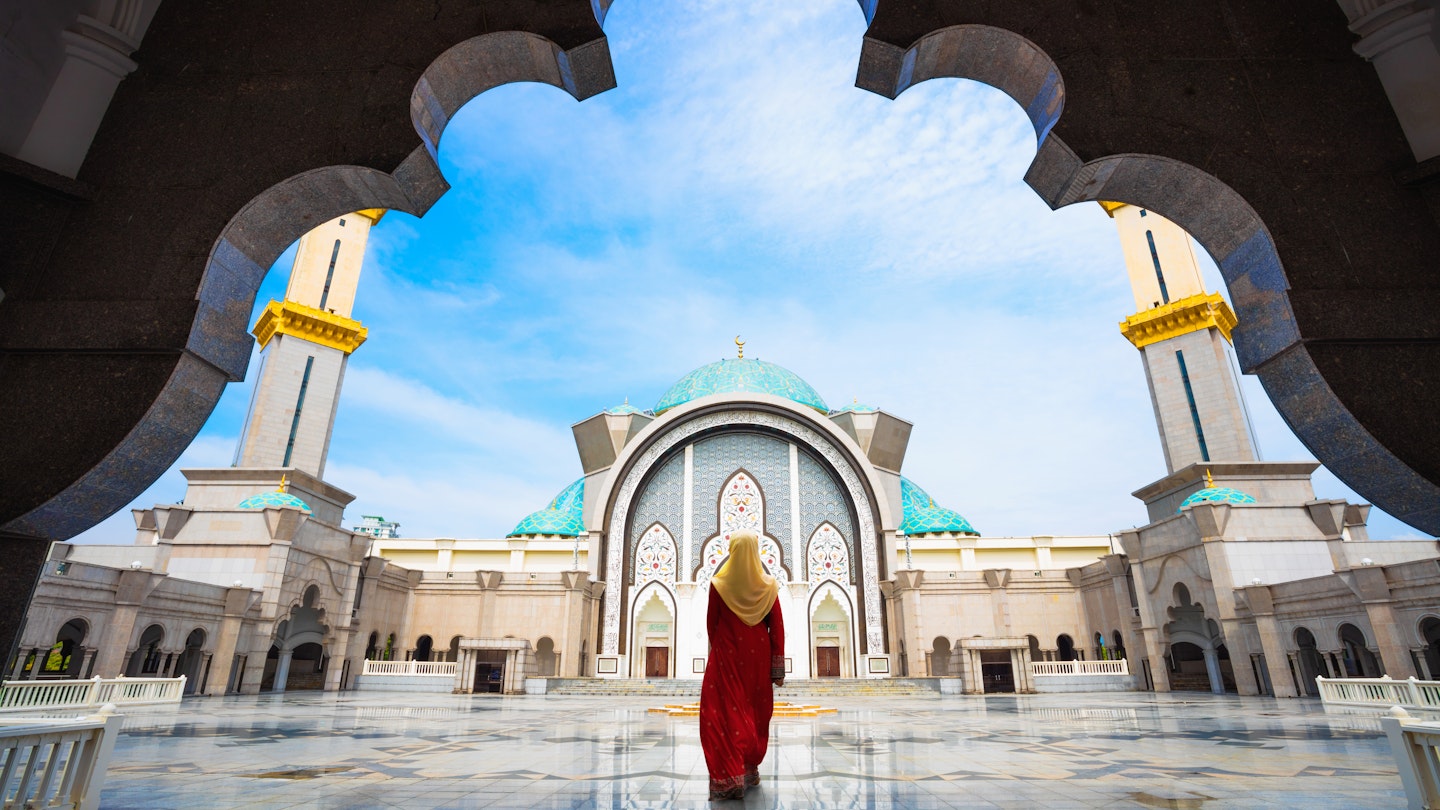
Entering the Federal Territory Mosque in Kuala Lumpur © Patrick Foto / Getty Images
Malaysia has a reputation as the easy country for travel in Southeast Asia, and that certainly applies to the visa situation. Citizens of many countries are granted visa-free entry on arrival, meaning there’s no complicated paperwork standing between you and Malaysia’s beaches, jungles and food markets.
Even better, the relaxed visa situation makes for easy detours to neighboring Singapore , Indonesia , Brunei and Thailand , though you’ll need to check the latest Covid restrictions before you travel. Here’s everything you need to know about visas for Malaysia.
Can I travel to Malaysia without a visa?
In normal circumstances, nationals of most countries in Europe, the US, Canada, Australia, New Zealand, Japan (and many other countries) can visit Malaysia without a visa for a stay of up to 90 days. This applies to entries by air, land and sea.
In practice, 90-day stays are usually given as the default if you arrive in Malaysia by air, but if you enter by land or by sea, you may be given a 30-day entry stamp unless you specifically ask for a longer permit. It’s worth doing this, as extending your stay may not be possible once the stamp is issued.
On arrival, your passport will be stamped and you’ll need to fill out an arrival/departure card; just make sure your passport is valid for six months from the date of entry. Technically, the authorities can ask for proof of sufficient funds for your stay and a ticket for onward travel from Malaysia, but this is not usually requested.

Some countries are granted a shorter stay in Malaysia
Citizens of Russia and many neighboring countries are granted a stay of one month on arrival, and similar rules apply to nationals of many countries in Africa and Central and South America. For longer stays, you’ll need to apply for a visa.
Note that citizens of Israel can only enter Malaysia with written permission from Malaysia’s Ministry of Home Affairs , which rules out easy overland trips from Thailand to Singapore.
What are the visa requirements for Malaysia?
If your home country is not on the visa-free travel list, or you’re planning a long stay, you’ll need to apply for a visa. However, be aware that the only visas valid for more than 90 days are the multi-entry visas reserved for business travelers.
Different rules apply to different countries. Tourist E-Visas lasting up to 30 days are issued to citizens of Serbia & Montenegro, China, India, and many other nations in South Asia and Africa. See the Immigration Department of Malaysia website for details of how to apply and a full list of approved countries.
Other nationals will need to apply for a visa the old-fashioned way at a Malaysian embassy or consulate in their home country. The Malaysian Ministry of Home Affairs has a full list of Malaysian missions overseas; contact your local embassy for advice on the application process.
Business and transit visas for Malaysia
For business trips, it’s usually fine to enter the country as if you were a tourist, but you are not permitted to work for any Malaysian company. Business travelers can also apply for long-duration multiple-entry visas, but the application process is complex – Malaysian embassies can provide details.
Transit visas are also available, but as so many people can enter Malaysia without a visa, they’re rarely needed.

What are the rules for travel to East Malaysia?
Sabah and Sarawak – the two Malaysian states on the island of Borneo – retain a certain degree of control over their borders. Even if you arrive from Peninsular Malaysia, you must go through passport control and have your passport stamped. This also applies when traveling between Sabah and Sarawak via Brunei, and when traveling to the federal district of Pulau Labuan.
When entering Sabah or Sarawak from another part of Malaysia, your new visa stamp will be valid only for the remainder of the period you were granted when you first entered Malaysia. If Malaysian Borneo is your first port of call in Malaysia, you’ll get the full, uninterrupted 30 or 90 days.
Extending a Malaysia visa
While the entry procedures for Malaysia can seem very relaxed, it’s important not to overstay your visa or the visa-free entry period. If you do, you can be detained, fined, deported, and blacklisted – it’s no laughing matter.
In the past, it has been possible to extend a 30-day entry up to 90 days through the Immigration Department of Malaysia , but don’t rely on this being possible with the pandemic muddying the waters. Extending a 90-day stay is out of the question.
The good news is that it is possible to prolong your stay in Malaysia by hopping across the border to a neighboring country. When you re-enter, you’ll be granted a new 30- or 90- day entry stamp on arrival. There’s rarely a problem if you do this once or twice, but the authorities may take a dim view if you repeat the so-called “visa run” too many times.
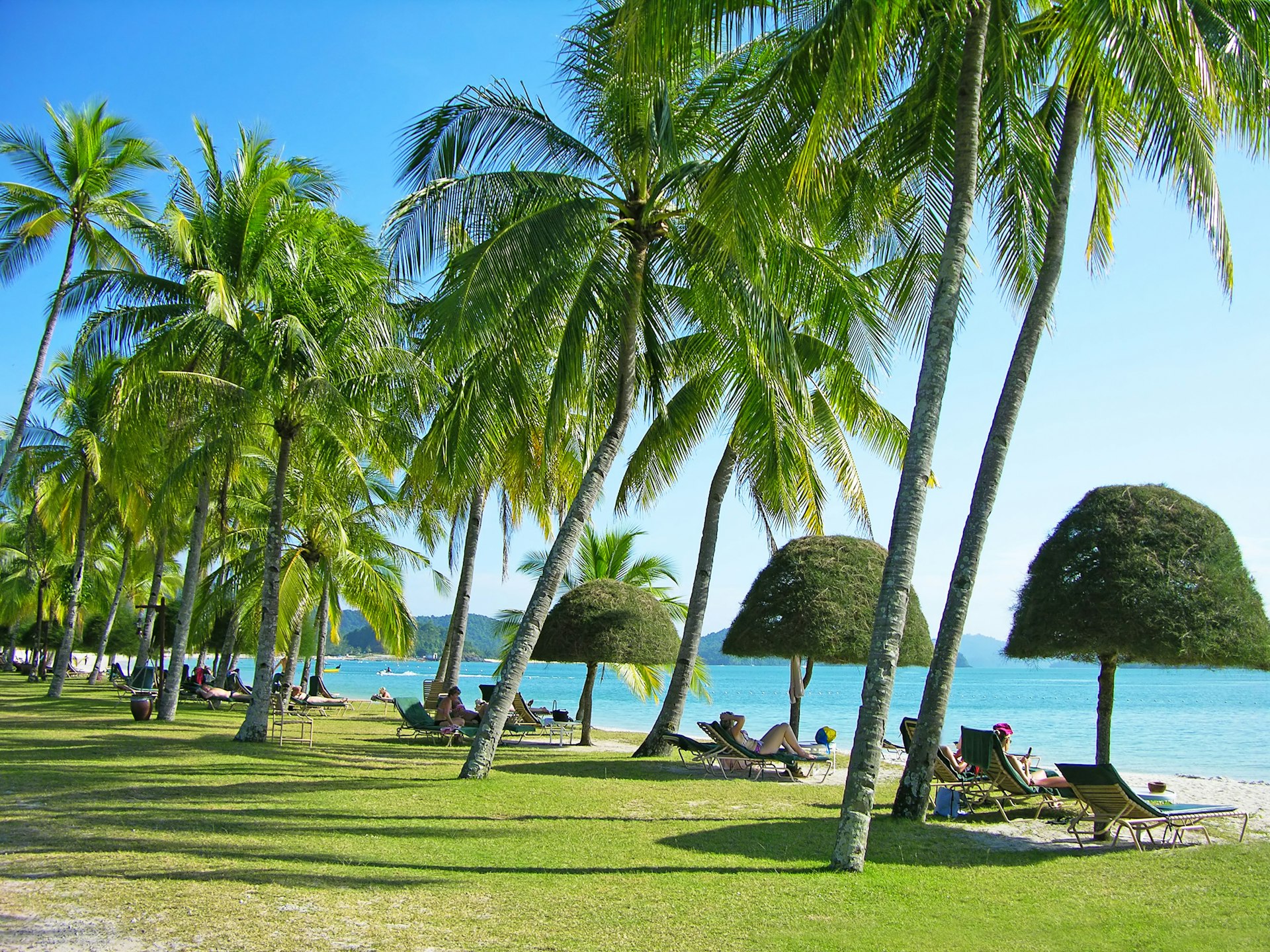
On the peninsula, the easiest place to leave and re-enter Malaysia is Johor Bahru ; local buses buzz across the causeway to Singapore day and night. The other easy option is Pulau Langkawi , which has ferries to Satun (year-round) and Ko Lipe (November to May) in Thailand.
Alternatively, consider crossing the Thai border by train at Padang Besar, or take the ferry to Sumatra in Indonesia from Melaka or Johor Bahru. In East Malaysia, you can cross by bus or boat into Kalimantan in Indonesia, or make the easy hop into Brunei by bus from either Miri or Kota Kinabalu , or by boat from Pulau Labuan.
You may also like: 12 best things you have to do in Singapore The 15 best things to do in Malaysia: Mountains, marine life, and amazing apes 'Ghosts are a big part of life in Malaysia': healing one year after losing my parents to COVID
Explore related stories
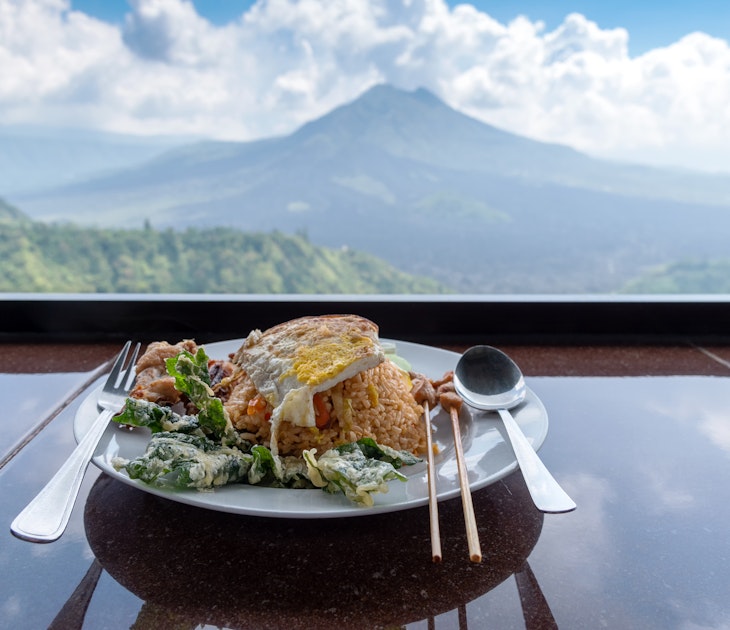
Tips & Advice
Apr 29, 2024 • 6 min read
Explore Indonesia’s diverse culinary landscape across the world's largest island nation, from satay to the globally renowned beef rendang.
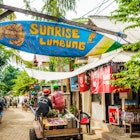
Apr 18, 2024 • 5 min read
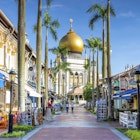
Apr 16, 2024 • 12 min read
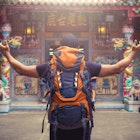
Apr 8, 2024 • 6 min read

Apr 6, 2024 • 6 min read
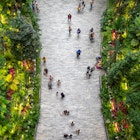
Mar 9, 2024 • 6 min read
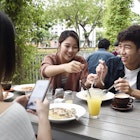
Mar 8, 2024 • 5 min read
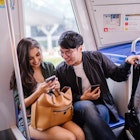
Mar 8, 2024 • 6 min read
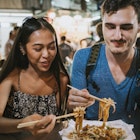
Feb 23, 2024 • 7 min read

Feb 9, 2024 • 12 min read

- The Star ePaper
- Subscriptions
- Manage Profile
- Change Password
- Manage Logins
- Manage Subscription
- Transaction History
- Manage Billing Info
- Manage For You
- Manage Bookmarks
- Package & Pricing
Revive Sabah My Second Home (SM2H) programme, urges Yong amid Sabah-MM2H issue
- Sabah & Sarawak
Monday, 10 Jun 2024
Related News

MA63: Cabinet needs to finalise different jurisdictions for federal, Sabah, Sarawak, says Fadillah
Fahmi presents instrument of royal invitation to sabah governor for king’s coronation, tiong sticks to mm2h order despite sabah blowback.
KOTA KINABALU: The state government should revive the Sabah My Second Home (SM2H) programme to allow non-Sabahan Malaysians to invest in properties in the state, says Datuk Seri Yong Teck Lee.
The Sabah Progressive Party (SAPP) president said since the SM2H programme, which he had proposed in August 2023, is targeted only at other Malaysians, it falls entirely under the Sabah government's immigration authority and hence does not require the Federal Government’s involvement.
"Transferring funds within Malaysia, from other states to Sabah, is straightforward for property purchases.
“This simple programme could have been initiated on Jan 1, 2024. Unlike the Sabah-MM2H, which is for non-Malaysians, this SM2H is specifically for Malaysians," Yong noted.
The former Sabah chief minister also suggested that once the Sabah authorities demonstrate efficient management of the SM2H programme, they can move forward with the Sabah-MM2H programme for foreign nationals later this year.
"Currently, even Sabah's business community is unclear about how the Sabah-MM2H programme works. My questions in the legislative assembly have gone unanswered."
He hopes that once the Sabah-M2H programme is operational, the Sabah Tourism, Culture and Environment Minister Datuk Christina Liew will see the benefits and collaborate with the federal Tourism, Arts and Culture Ministry to advance the Sabah-MM2H initiative.
Discussing Sabah-MM2H, Yong highlighted that foreign applicants are typically business people who require confidence in their investment's security and residency privileges.
Yong, however, noted that the ongoing dispute between Liew and federal Tourism Minister Datuk Seri Tiong King Sing has undermined this confidence.
He also stressed the need for a clear and committed stance from both Sabah and the federal government to attract Sabah-MM2H participants.
While Sabah's autonomy over immigration is respected, foreign investors are aware they need federal immigration permits to enter Malaysia.
Yong cited a past policy misalignment between Sabah and the federal government during the Covid-19 era regarding dine-in services at eateries.
"While the federal National Safety Council had not allowed dine-in, Sabah permitted it, and there was no federal enforcement against this."
He stressed that the Sabah-MM2H programme is far more complex than the dine-in policies.
"The Sabah-MM2H involves foreign passport holders investing at least RM600,000 each in Sabah properties, which they cannot easily liquidate,” said Yong.
On May 27, Tiong issued a directive to suspend the operations of all licensed agents handling MM2H applications, including those in East Malaysia.
Liew, on Friday (June 7), said Sabah will proceed with the MM2H, with or without the ministry’s greenlight, adding that the programme will not contravene the law as they have sat with the police, Immigration Department and other relevant authorities to approve the applications under the programme.
Tiong later hit back at Liew through his Facebook post, claiming that the latter had not been attending meetings, nor sending any representative when matters regarding MM2H were discussed.
To date, Liew has not responded to Tiong’s allegations.
Tags / Keywords: Proposal , non-Sabahan Malaysians , Sabah-Malaysia My Second Home , Sabah Progressive Party (SAPP) president , Yong Teck Lee , Sabah My Second Home
Found a mistake in this article?
Report it to us.
Thank you for your report!

Beat the heat with LG’s energy-saving ArtCool air conditioner
Next in nation.

Trending in News
Air pollutant index, highest api readings, select state and location to view the latest api reading.
- Select Location
Source: Department of Environment, Malaysia
Others Also Read
Best viewed on Chrome browsers.

We would love to keep you posted on the latest promotion. Kindly fill the form below
Thank you for downloading.
We hope you enjoy this feature!
Security Alert May 17, 2024
Worldwide caution, update may 10, 2024, information for u.s. citizens in the middle east.
- Travel Advisories |
- Contact Us |
- MyTravelGov |
Find U.S. Embassies & Consulates
Travel.state.gov, congressional liaison, special issuance agency, u.s. passports, international travel, intercountry adoption, international parental child abduction, records and authentications, popular links, travel advisories, mytravelgov, stay connected, legal resources, legal information, info for u.s. law enforcement, replace or certify documents.
Get a Passport
Renew or Replace a Passport
Get My Passport Fast
Prepare to Apply
Passport Help
Legal Matters
Prepare to Apply for a Passport Homepage
Share this page:
Passport Forms
What Form Should I use?
Get Your Processing Time
Passport Fees
Passport Photos
Citizenship Evidence
Photo Identification
Where to Apply
This page provides information about photos if you are applying or renewing using a paper form.
- Submit one color photo
- Submit a recent photo taken in last 6 months
- Use a clear image of your face
- Do not change your photo using computer software, phone apps or filters, or artificial intelligence
- Have someone else take your photo. No selfies.
- Take off your eyeglasses for your photo
- Use a white or off-white background without shadows, texture, or lines
Photo Examples
- Shadows and Lighting
- Size and Position
Resolution, Print Size, and Quality
- Digital Changes
Pose and Expression
Attire, hats, and glasses, already have a photo.
Use our Photo Tool to crop your photo so it's the right size.
- This photo tool does not check the quality of your image.
- This tool is for cropping your photo only when you are applying or renewing using a paper form.
- Do not use this tool if you are renewing online.
After you apply, a U.S. Department of State employee will review your photo and decide if we can accept your photo.
Tips for Submitting your Photo
- Submit a high-resolution photo that is not blurry, grainy, or pixelated.
- 2 x 2 inches (51 x 51 mm)
- Head must be between 1 -1 3/8 inches (25 - 35 mm) from the bottom of the chin to the top of the head
- Printed on matte or glossy photo quality paper.
- Do not change your photo using computer software, phone apps or filters, or artificial intelligence.
- Do not submit photocopies or digitally-scanned photos.
- Do not submit a damaged photo with holes, creases, or smudges.
- Have a neutral facial expression with both eyes open and mouth closed.
- Face the camera directly with full face in view.
- If you cannot remove your glasses for medical reasons, please include a signed note from your doctor with application.
- You cannot wear a uniform, clothing that looks like a uniform, or camouflage clothing.
- If you wear one for religious purposes, submit a signed statement that says it is religious attire worn daily in public.
- If you wear one for medical purposes, submit a signed doctor's statement that says you wear it for medical purposes.
- Your full face must be visible and your hat or head covering cannot cast shadows or cover part of your face.
- You cannot wear headphones or wireless hands-free devices.
- You can wear jewelry and keep on your facial piercings as long as they do not hide your face.
- Take off any face covering or medical mask so your full face is visible and the face covering or mask do not block portions of your face.
Frequently Asked Questions
Where can i get my photo taken.
You can go to:
- An acceptance facility that will take a photo when you apply for your passport
- Any company which offers photo services
- A friend or family member, and print your own photo on matte or glossy paper
Acceptance facilities and photo vendors charge different fees for taking your photo.
Can I smile in my passport photo?
Yes. Make sure your eyes are open and your mouth is closed in your photo.
Do I need a new passport if my appearance changed?
You only need to apply for a new passport if your appearance significantly changed. If you can still be identified from the photo in your current passport, do not apply for a new passport.
Minor change - do not apply for a new passport
- Growing a beard
- Coloring your hair
- Normal aging process
Major change - apply for a new passport
- Significant facial surgery or trauma
- Adding or removing many large facial piercings or tattoos
- Significant weight loss or gain
- A gender transition
Do you have more tips to take a photo of a baby or toddler?
Yes. Some tips include:
- Lay your baby or toddler on a plain white or off-white sheet, or cover a car seat with a plain white or off-white sheet.
- Make sure there are no shadows on your baby or toddler's face.
- It is okay if a baby's eyes are not entirely open. All other children must have their eyes open.
Picture Perfect Passport
Follow these steps so you have a great passport photo.
Tips for Taking a Good Photo
Learn about a few tips for taking a good photo if you are renewing by mail or applying in person.
Image Sizing Photo Tips
Photos that are taken too close or too far away will be rejected.
Low Quality Image or Paper Tips
Photo is blurry, grainy, pixelated, or printed on the wrong paper. Photos should be high resolution.
Photo Exposure Tips
Photos that are too bright or that show shadows on your face will also cause you problems. Your photo needs to be a clear image of your face.
Previous Passport Book Photos
Your passport photo needs to have been taken within the last 6 months. We verify that the photo looks like you.
External Link
You are about to leave travel.state.gov for an external website that is not maintained by the U.S. Department of State.
Links to external websites are provided as a convenience and should not be construed as an endorsement by the U.S. Department of State of the views or products contained therein. If you wish to remain on travel.state.gov, click the "cancel" message.
You are about to visit:

IMAGES
VIDEO
COMMENTS
To-Do Lists Before Travel To Sabah. 1. The Best Time To Visit Sabah. The best time to visit Sabah is from March to September which is during the dry season but you can also plan for your trip from October to February, just that it will be wetter compared to the other months. Furthermore, Sabah is usually spared from the region's extreme ...
This document is issued to Malaysians from West Malaysia travelling to Sabah and Sarawak as an alternative to the Malaysian Passport and Restricted Travel Document in accordance with Part VII, Special Provisions For East Malaysia, Immigration Act 1959/63. Validity. Valid for a Single Journey. The holder is allowed to enter and remain in Sabah ...
The main gateway to Sabah is the Kota Kinabalu International Airport (KKIA) situated about 20 minutes away from the city. Malaysia Airlines and AirAsia provide daily direct flights to Sabah from Kuala Lumpur, Malaysia's capital city. Internationally, Sabah is accessible from Brunei Darussalam, China, Hong Kong, Taipei, Japan, Thailand ...
Complete the Malaysian Passport form (IM.42) which can be obtained at the passport office counter or downloaded through the Immigration Website for free. The form must be downloaded and printed on A4 paper (front and back). Picture measuring 3.5 cm x 5 cm - two (2) pieces. Existing Restricted Travel Document (if applicable)
KOTA KINABALU (April 25): A new guideline has been issued for the entry of international travelers to Sabah via air, land and sea. International travelers are given the option to undergo a Covid ...
committee (covid-19) sabah guideline for entry into sabah for international travellers with effect from 1 april 2022 state home affairs and research office ... -malaysians / non-malaysian categories documents required (pre-entry) upon arrival in sabah entry status costs to be paid by travellers transit passengers via klia / klia 2 / point
KOTA KINABALU: Starting tomorrow, foreigners can enter Sabah for social visits without requiring special entry approval. However, Sabah Covid-19 spokesman Datuk Seri Masidi Manjun said they must have a valid immigration pass or passport to enter the state. "Diplomats and expatriates including dependents currently residing in Peninsular Malaysia ...
A Malaysian Passport is a valid Travel Document issued to a Malaysian citizen for the purpose of traveling out of the country. ELIGIBILITY. Malaysian. PLACE TO APPLY. All Immigration Offices in Malaysia and at Malaysian Representative Offices abroad. VALIDITY. The validity period of the passport is FIVE (5) years from the Date of issue.
Sunday, 31 Oct 2021. 8:38 PM MYT. KOTA KINABALU: Sabah has released the guidelines for entry procedures into the state for Malaysians and non-Malaysians effective Monday (Nov 1), as it begins to ...
By Road. Sarawak is the only place from where you can go overland into Sabah via a border crossing at Merapok. Non-residents of Sarawak and Sabah need to pass through the immigration checks positioned here. The road connecting Kota Kinabalu with the border is in good condition and is blocked all the way. If you are planning to do overland trail ...
One person said, "You need a passport to go to Sarawak. If you go to Sabah, you can use your IC but they will give you a [90-day] pass. Even a lot of Sabah locals do not know about this, so this is actually a reasonable question. Please enlighten your friend about this." Image via Twitter @tnmuzzaffar. Another netizen explained, "You can enter ...
Entering Sabah. Malaysian citizens from Peninsular Malaysia can enter Sabah with MyKad (passport not required). Foreigner need a passport or Visa to visit Sabah. Your Passport must have a validity of at least 6 months upon entry. Visa is not required for some countries such as Australia, USA, UK and Japan.
TRAVEL REPLACEMENT DOCUMENT. 1. Purpose. A Document In Lieu of Internal Travel Document is a valid travel document issued by the Malaysian Government as an alternative to an International Malaysian Passport or a Restricted Travel Document to Malaysian Citizens from Peninsular Malaysia for the purpose of visiting Sabah and Sarawak.
Cover image via Tang Tales Wikimedia. A tweet recently went viral and sparked an online debate regarding whether those living in Peninsular Malaysia need to carry their passport or not when visiting Sabah and Sarawak. On 31 January, Twitter user @mohsyahnizam uploaded a screenshot of a conversation between him and a friend.
Enroll in the Smart Traveler Enrollment Program (STEP) to receive security messages and make it easier to locate you in an emergency. Call us in Washington, D.C. at 1-888-407-4747 (toll-free in the United States and Canada) or 1-202-501-4444 (from all other countries) from 8:00 a.m. to 8:00 p.m., Eastern Standard Time, Monday through Friday ...
British nationals do not need a visa to visit Malaysia. You will normally be allowed to stay for 90 days on arrival. For any longer, or for a non-tourist visit, you will need a visa. The Malaysian ...
International transit travellers at the international PoE in Malaysia are also allowed to continue their journey to Sabah, he said. As for the pre-entry, Masidi said the guidelines are in accordance with the existing regulations of the procedure for entering Malaysia as outlined by the Health Ministry. Today, Sabah's new Covid-19 cases dropped ...
Even though Sabah and Sarawak are in the federation of Malaysia, you need a passport to visit these East Malaysian States. Visa requirements. British, Irish and most Commonwealth citizens do not need a visa. Holders of US passports, for example, can enter Malaysia for three months without a visa. Malaysian diplomatic missions overseas
High Commission of the Republic of Singapore in Malaysia. 209 Jalan Tun Razak. 50400 Kuala Lumpur. Tel: +60 321 616 277. Duty phone: +60 166 610 400. Email: [email protected]. Ministry of Foreign Affairs Duty Office. Tanglin. Singapore 248163.
If you travel between Peninsular Malaysia and East Malaysia, you need your passport. East Malaysia includes Sabah and Sarawak. Check if your travel insurance policy covers you for any related damage and injuries if you plan to hire: a car; a motorcycle; a jet ski; any other vehicle; Driving permit. To drive in Malaysia, you need both:
Yep, you can use your ic. You will then be given a 90 days pass, so remember to keep it safe to return to immigration when you're going to fly back. Nope no need. I would just bring my passport to Borneo, just in case I'm rerouting my flight journey to somewhere else beyond Malaysia border, say Singapore, Indonesia, etc.
Your passport must be valid for at least 6 months beyond the date you expect to leave Malaysia. Passport for official travel. Different entry rules may apply. ... Foreign vessels travelling in the waters off Sabah are subject to Malaysian law and must use routes designated by Malaysian authorities. ... You should think about your need to travel ...
Friday, 07 Jun 2024 1:03 PM MYT. KOTA KINABALU, June 7 ― The Sabah Tourism, Culture and Environment Ministry will launch a hotline for tourists who encounter issues with their travels in the state, especially those involving homestay scammers, its minister Datuk Christina Liew said. Liew said the hotline would operate under the Sabah Tourism ...
In normal circumstances, nationals of most countries in Europe, the US, Canada, Australia, New Zealand, Japan (and many other countries) can visit Malaysia without a visa for a stay of up to 90 days. This applies to entries by air, land and sea. In practice, 90-day stays are usually given as the default if you arrive in Malaysia by air, but if ...
KOTA KINABALU: The state government should revive the Sabah My Second Home (SM2H) programme to allow non-Sabahan Malaysians to invest in properties in the state, says Datuk Seri Yong Teck Lee.
The correct size of a passport photo is: 2 x 2 inches (51 x 51 mm) Head must be between 1 -1 3/8 inches (25 - 35 mm) from the bottom of the chin to the top of the head ... You only need to apply for a new passport if your appearance significantly changed. If you can still be identified from the photo in your current passport, do not apply for a ...